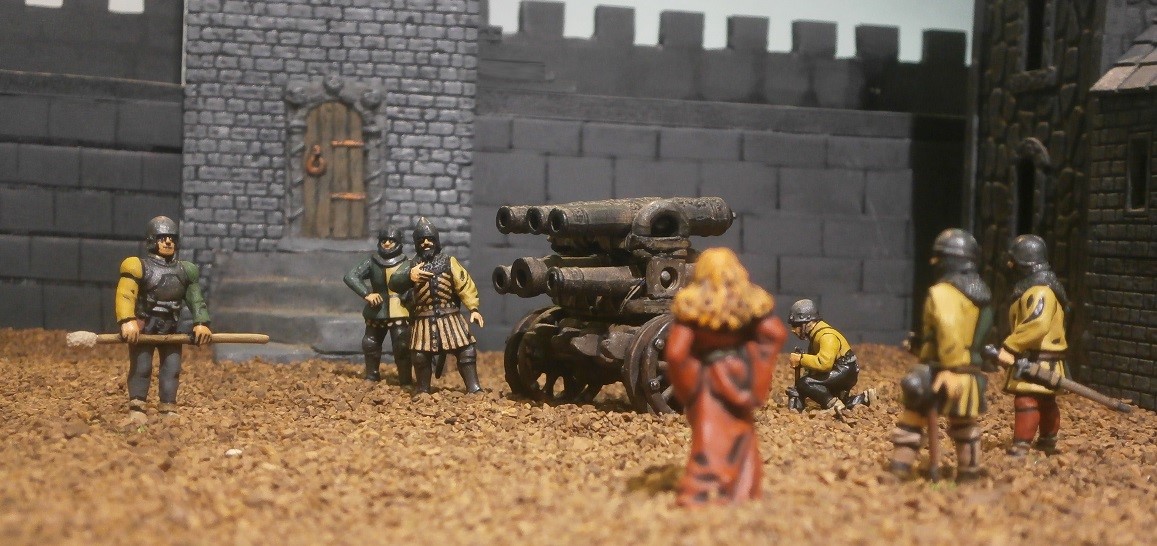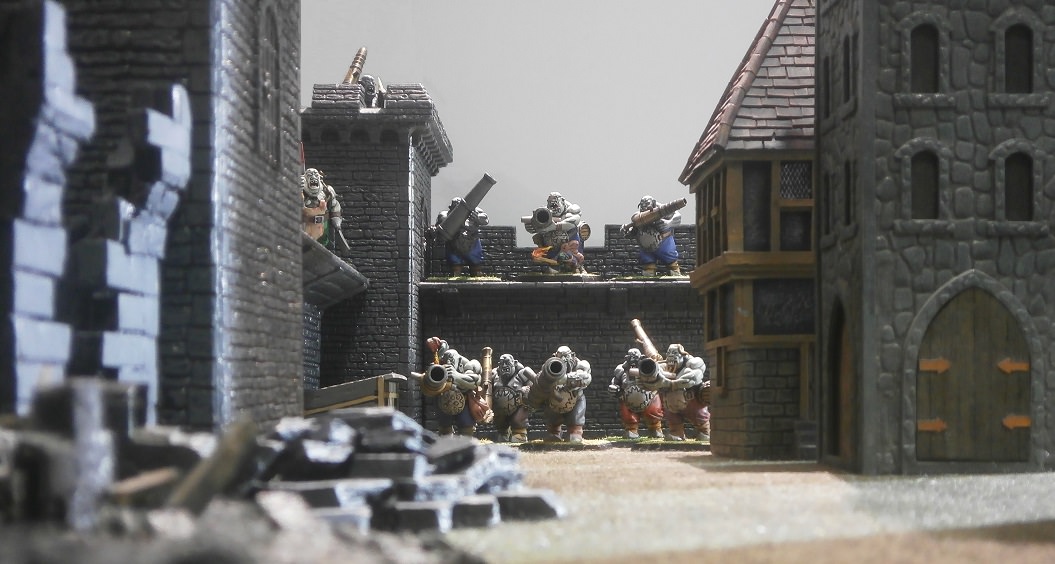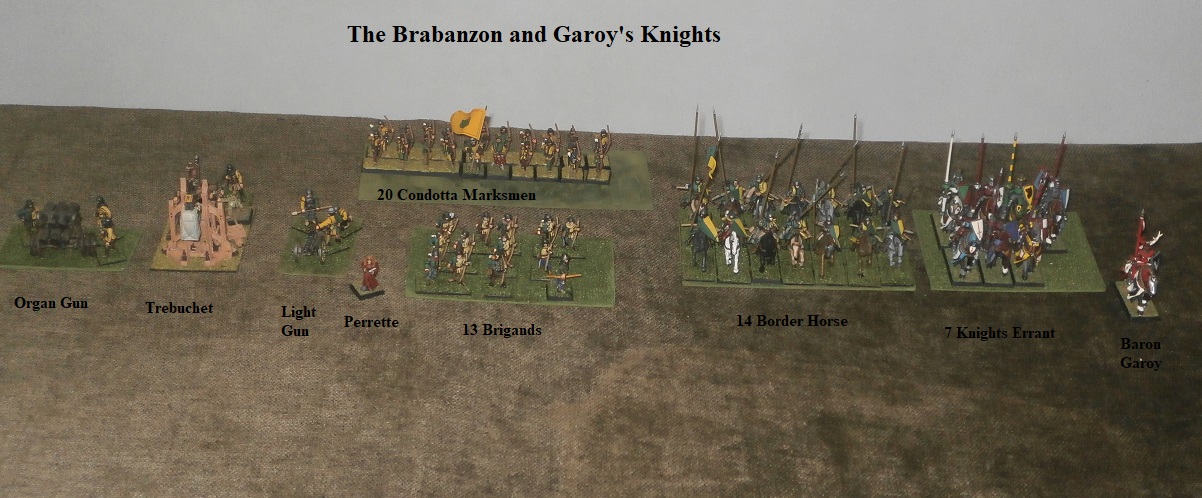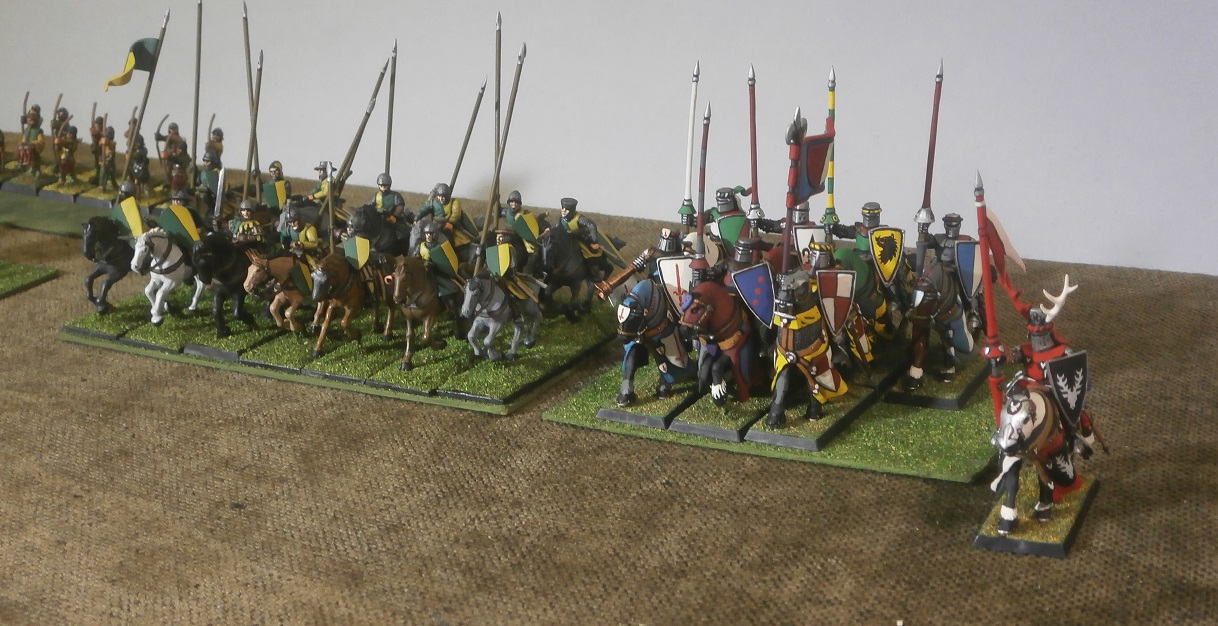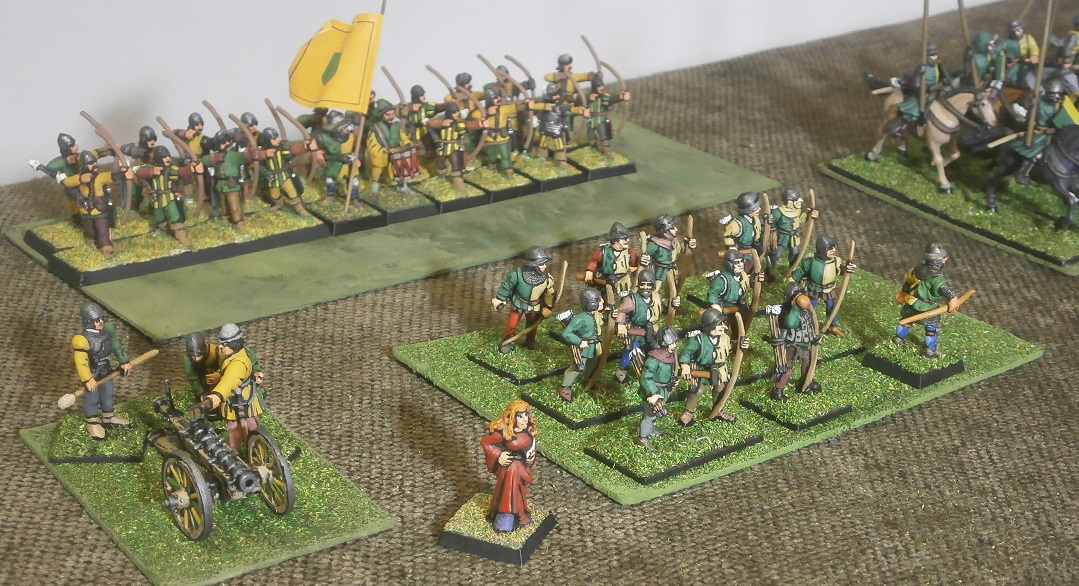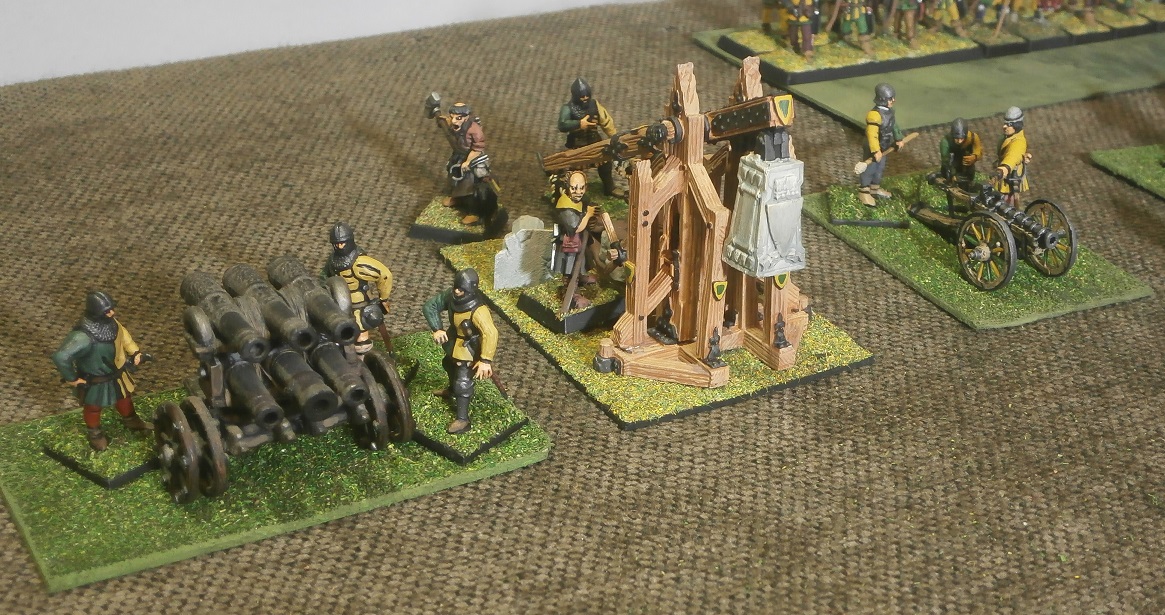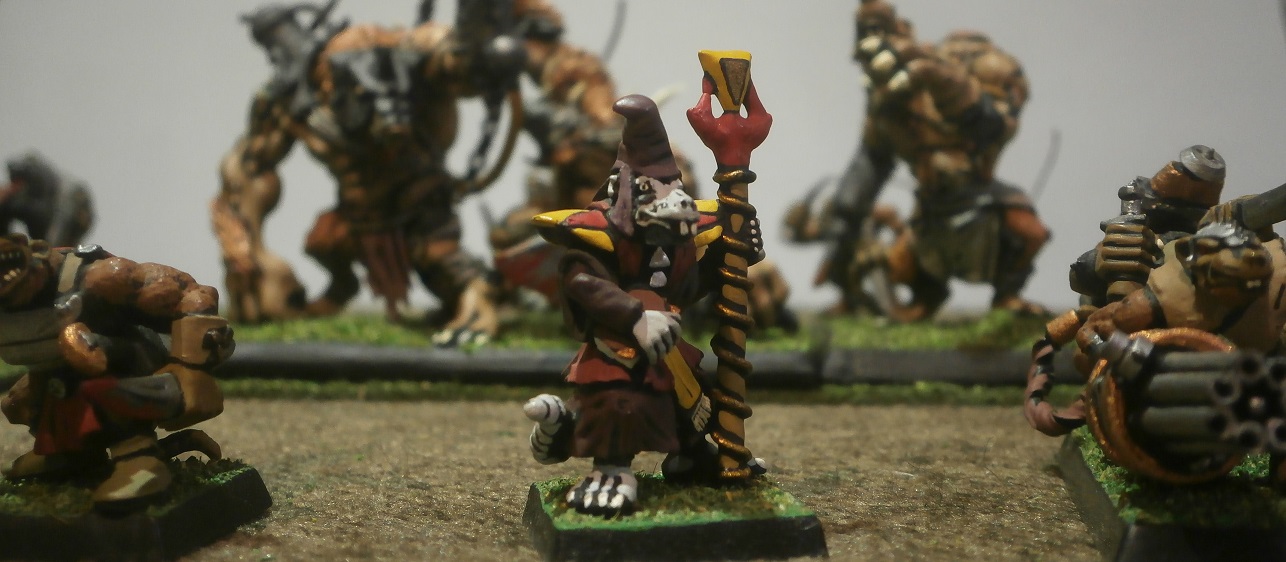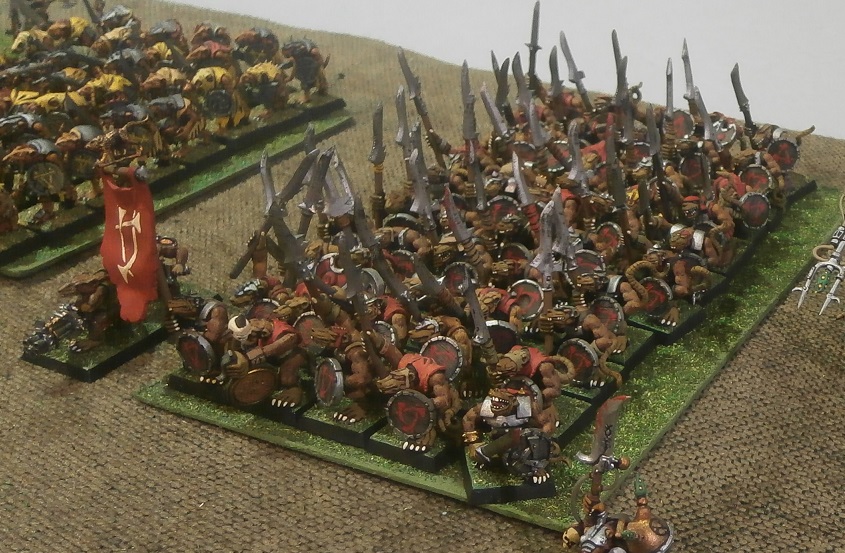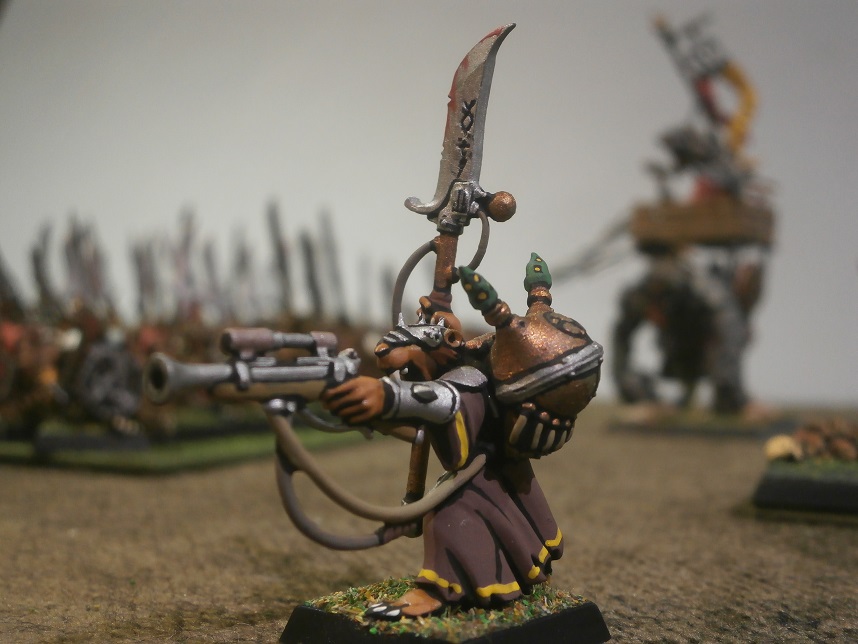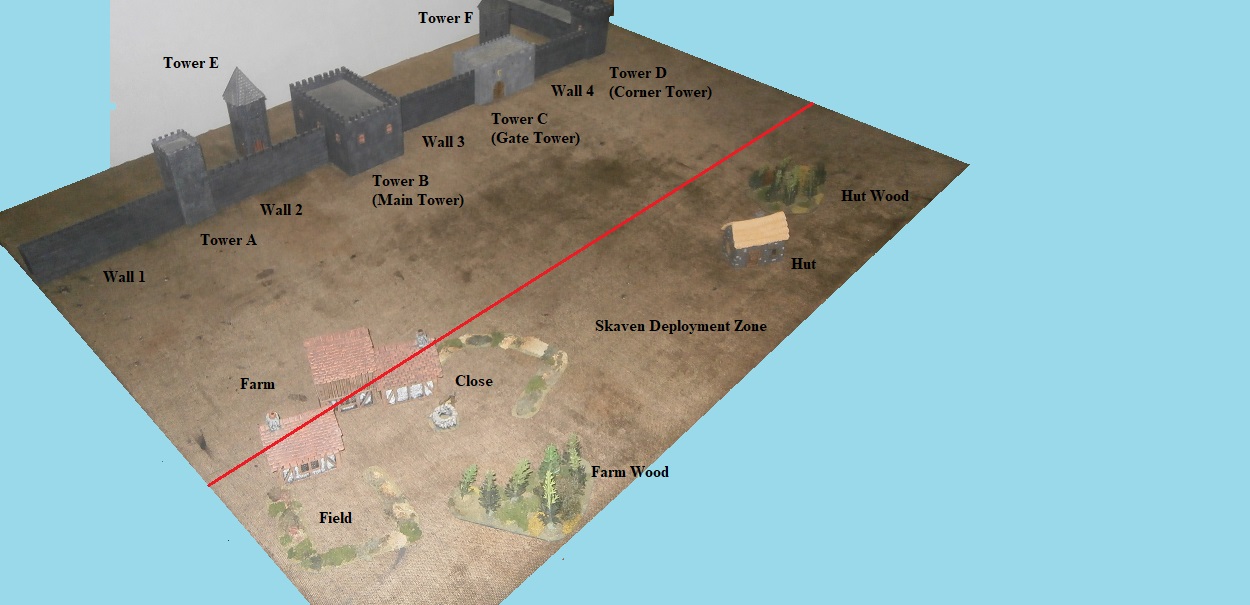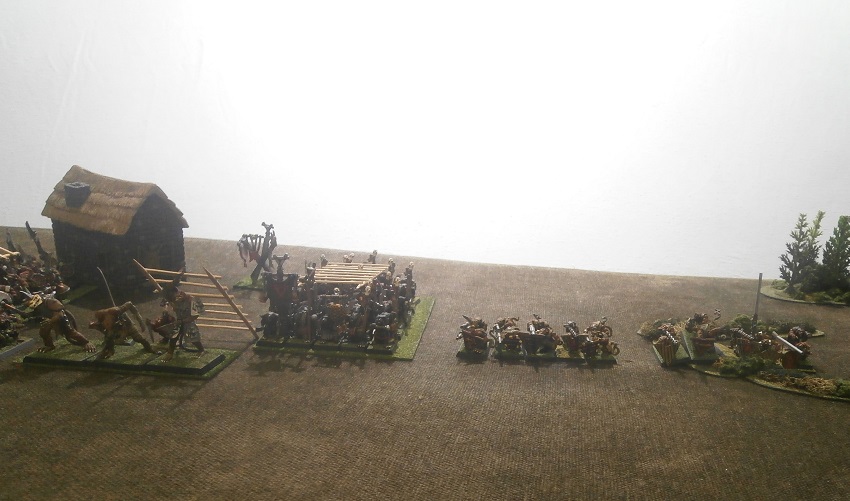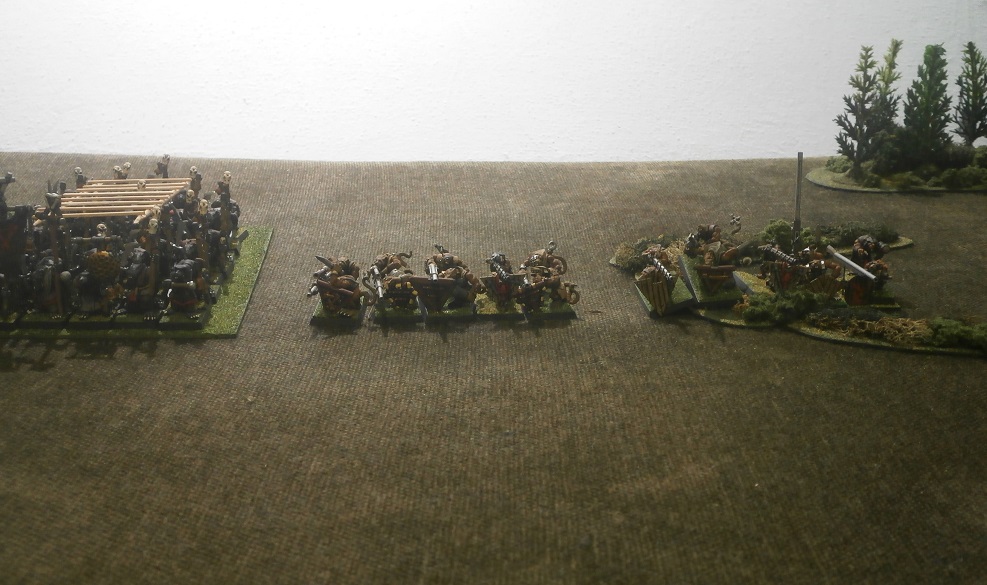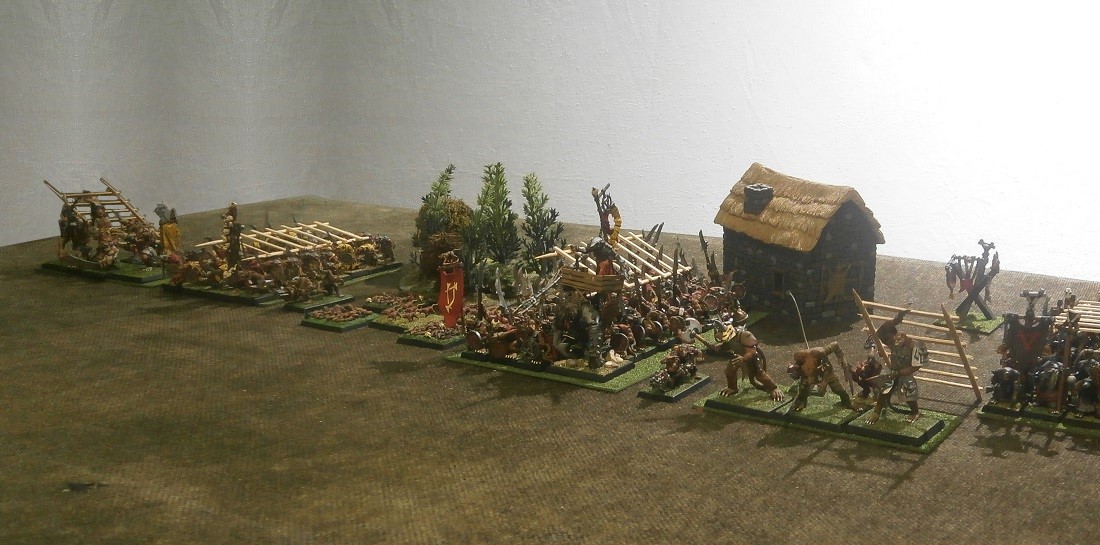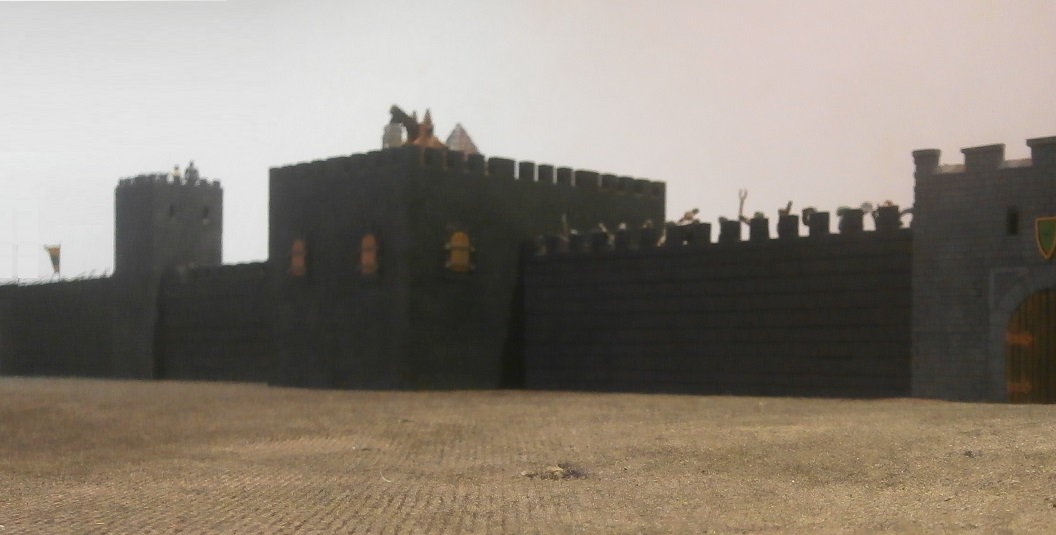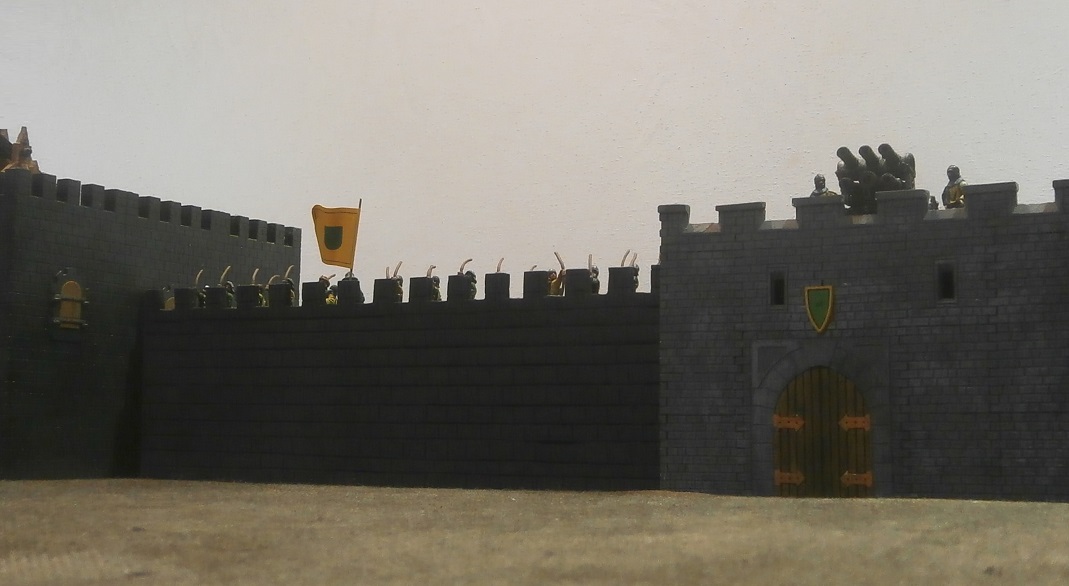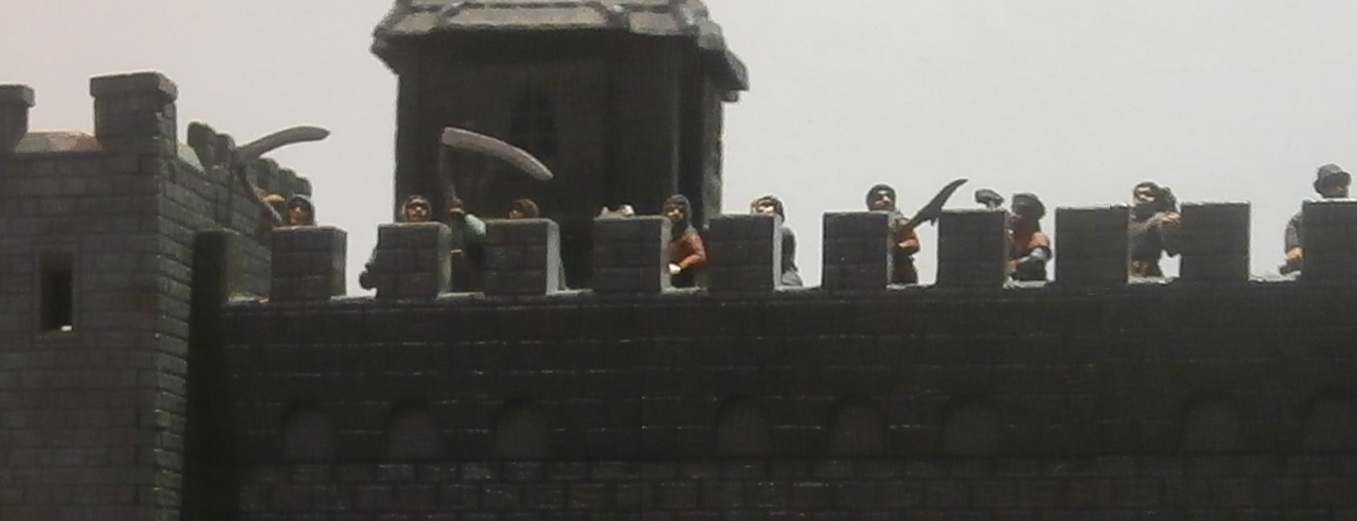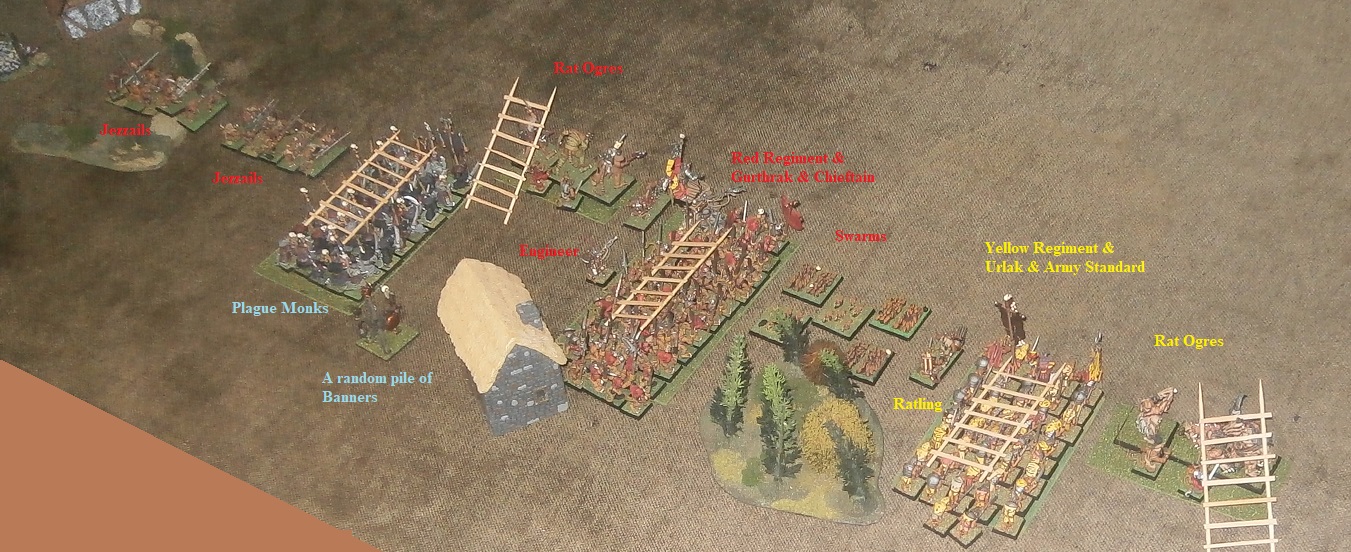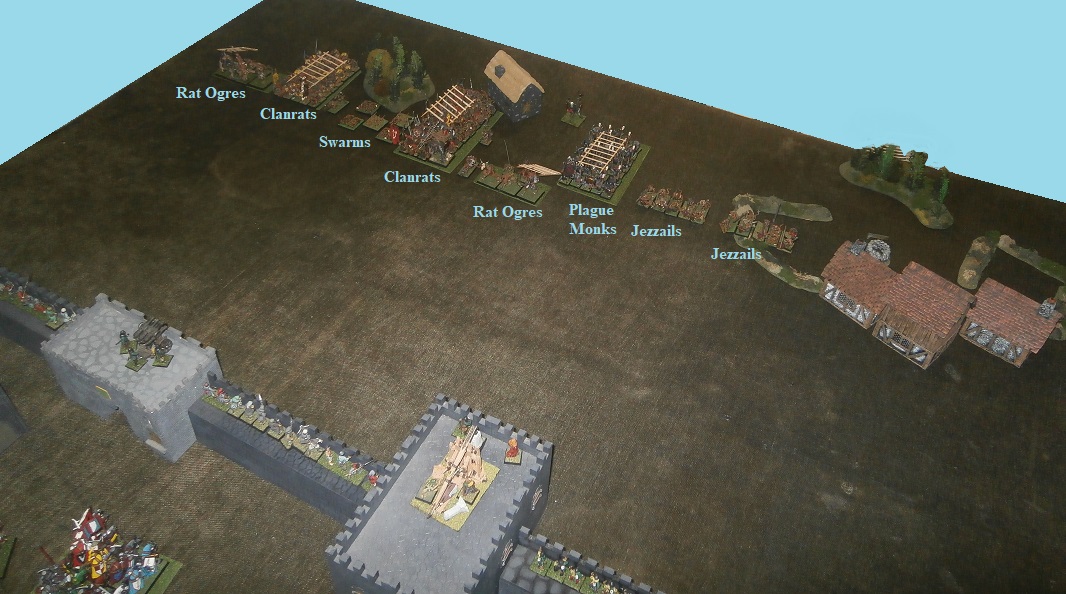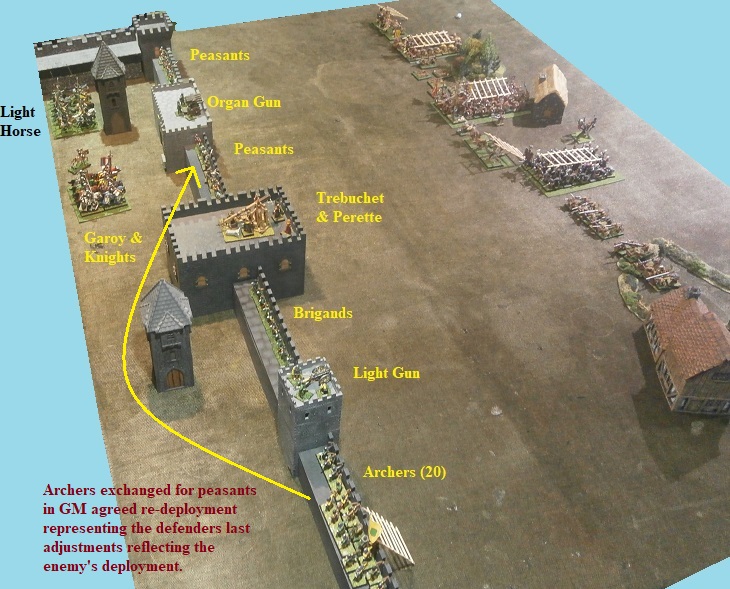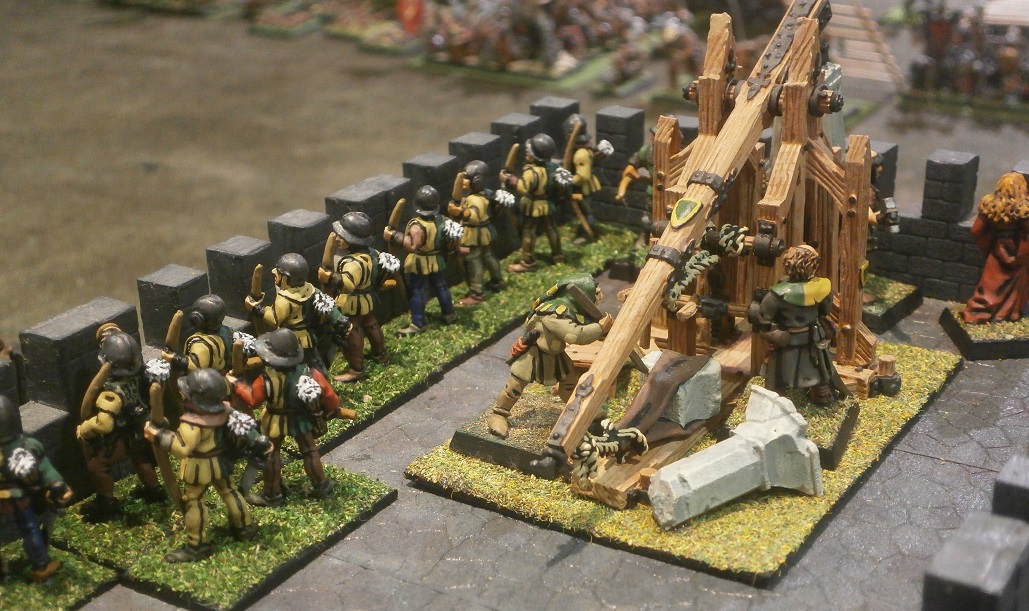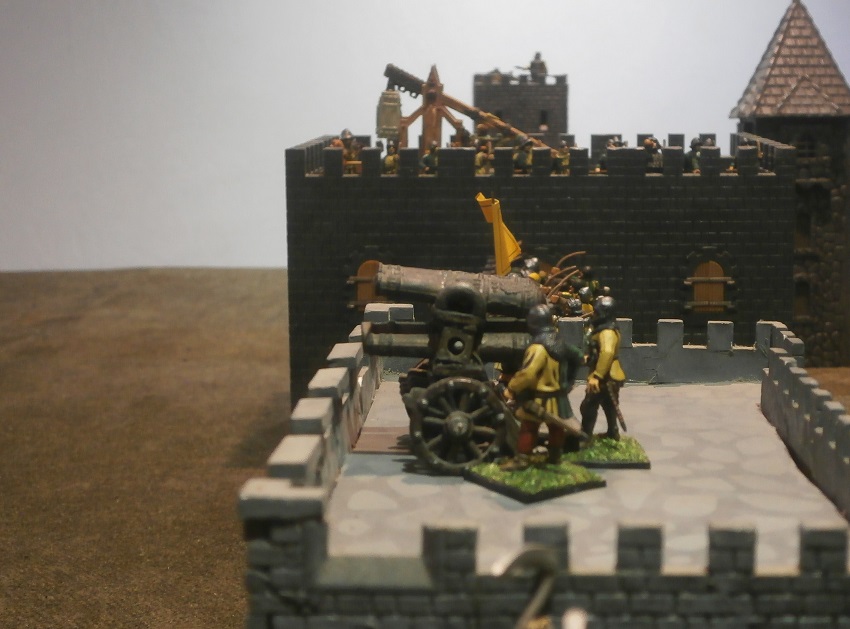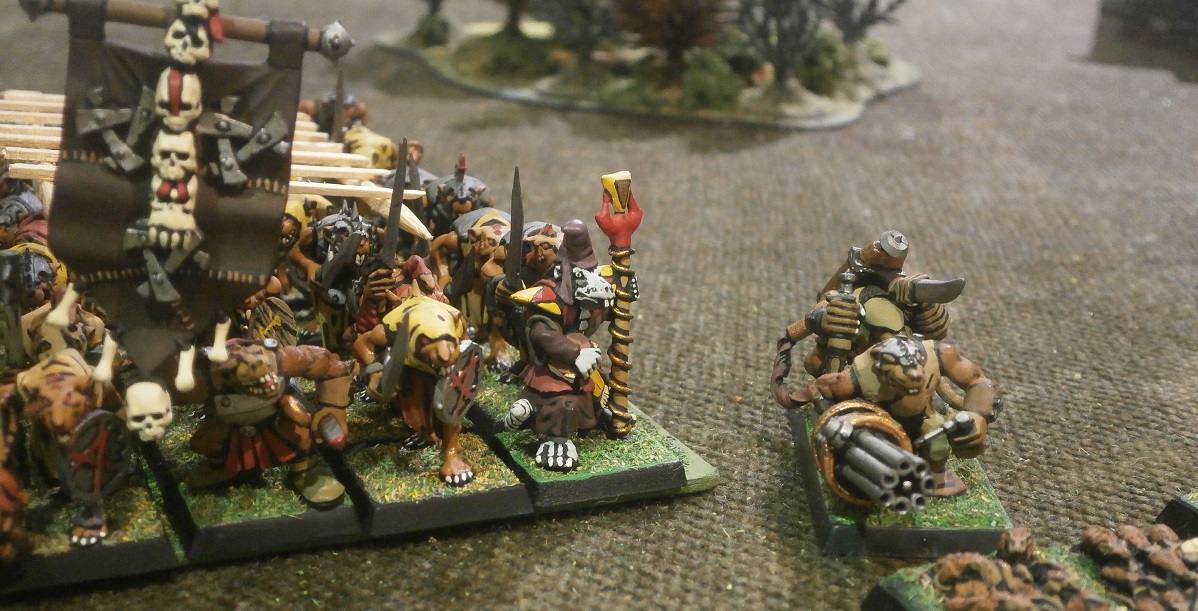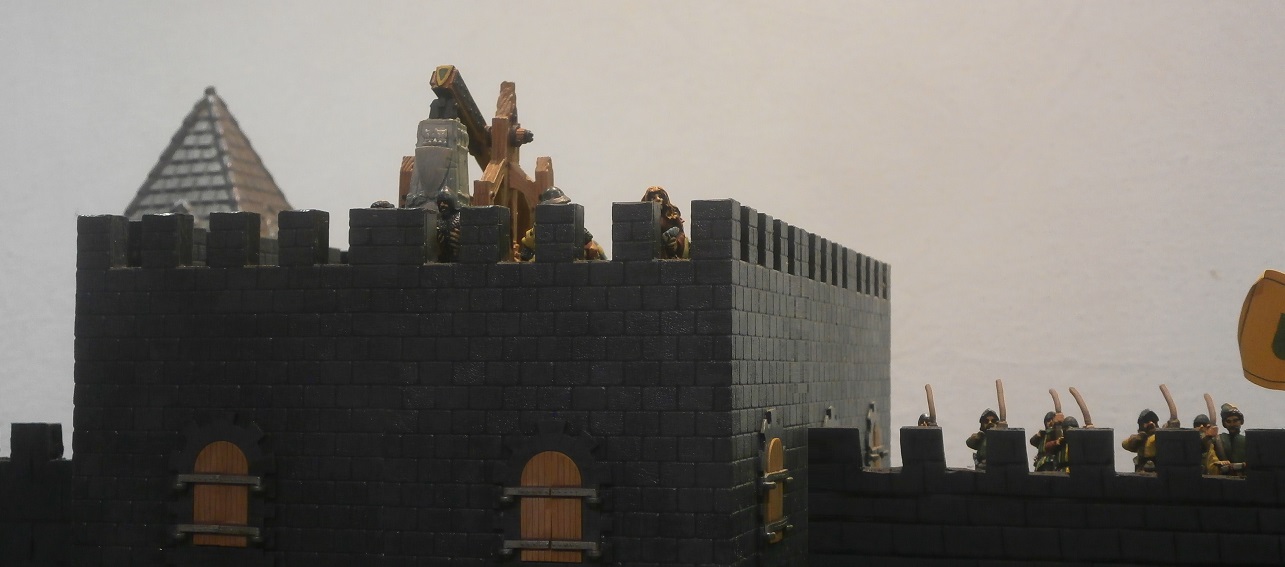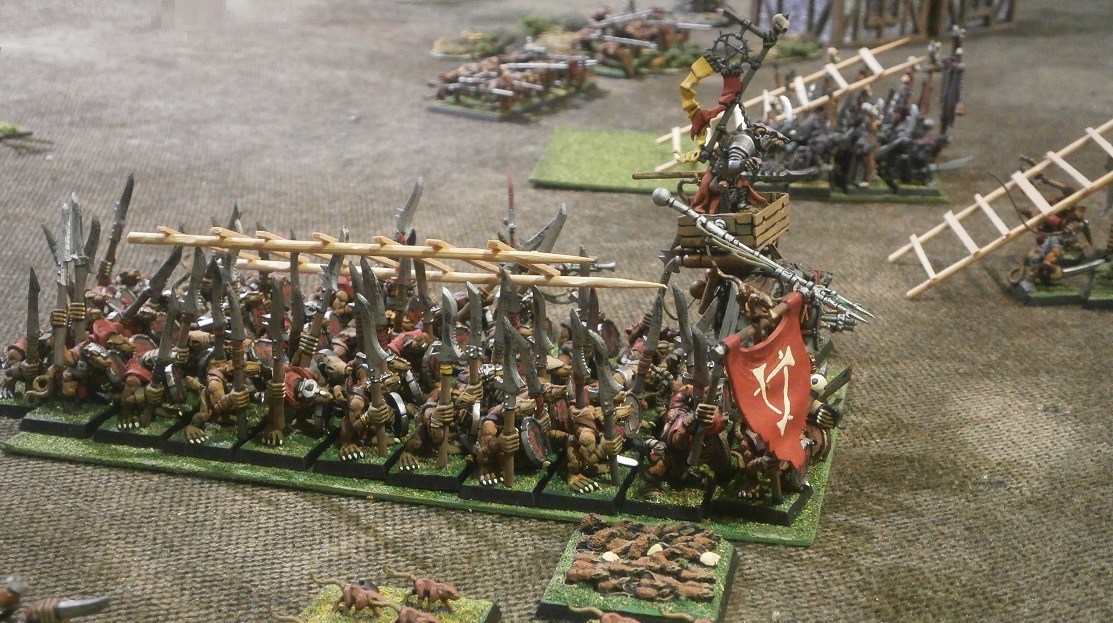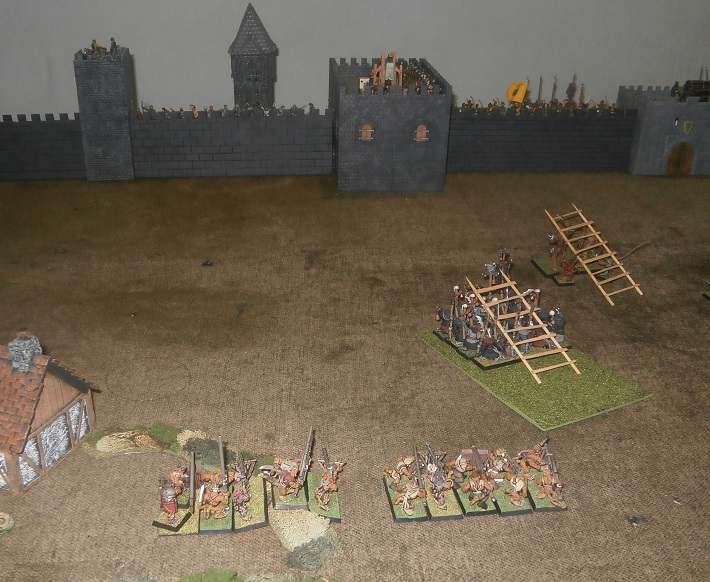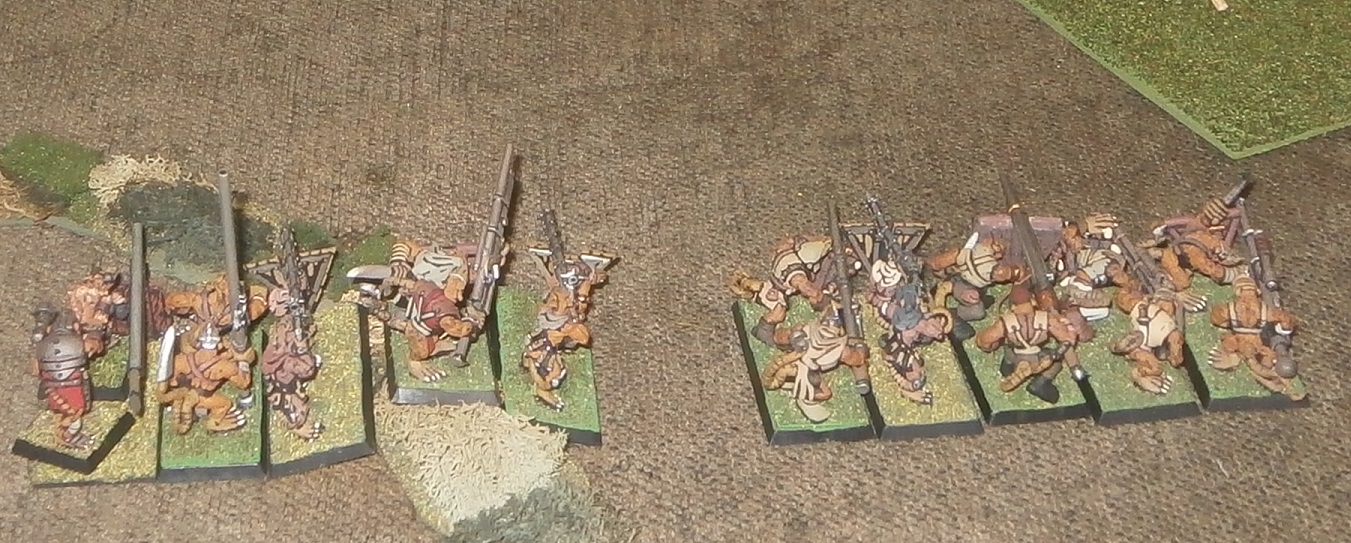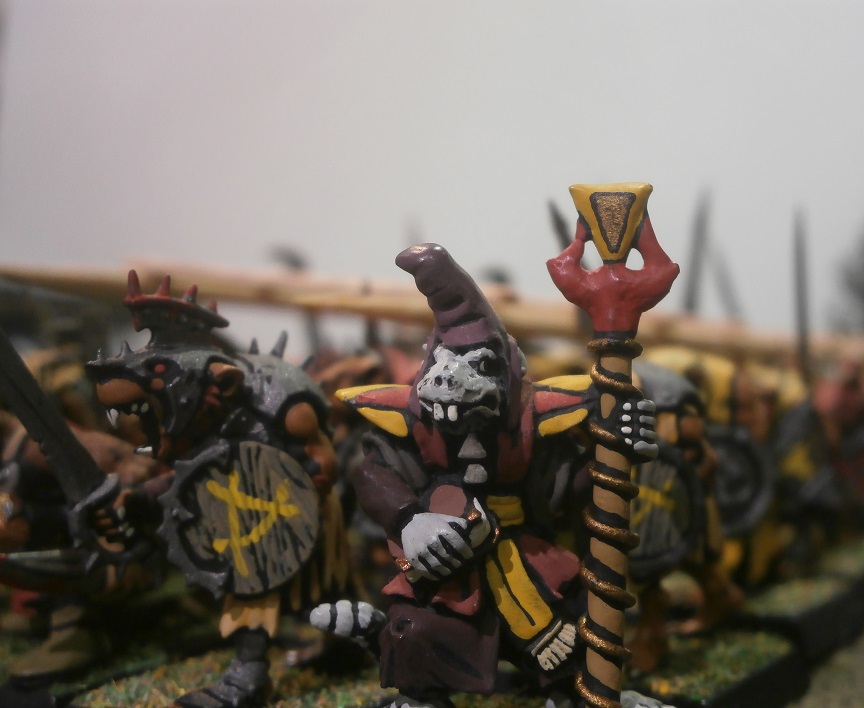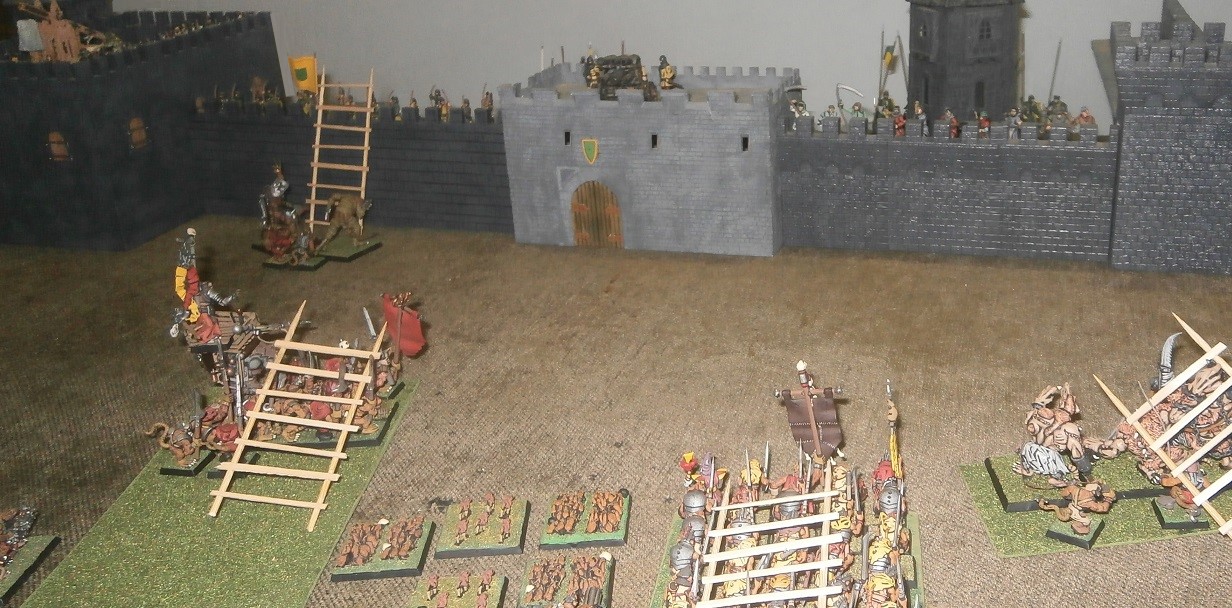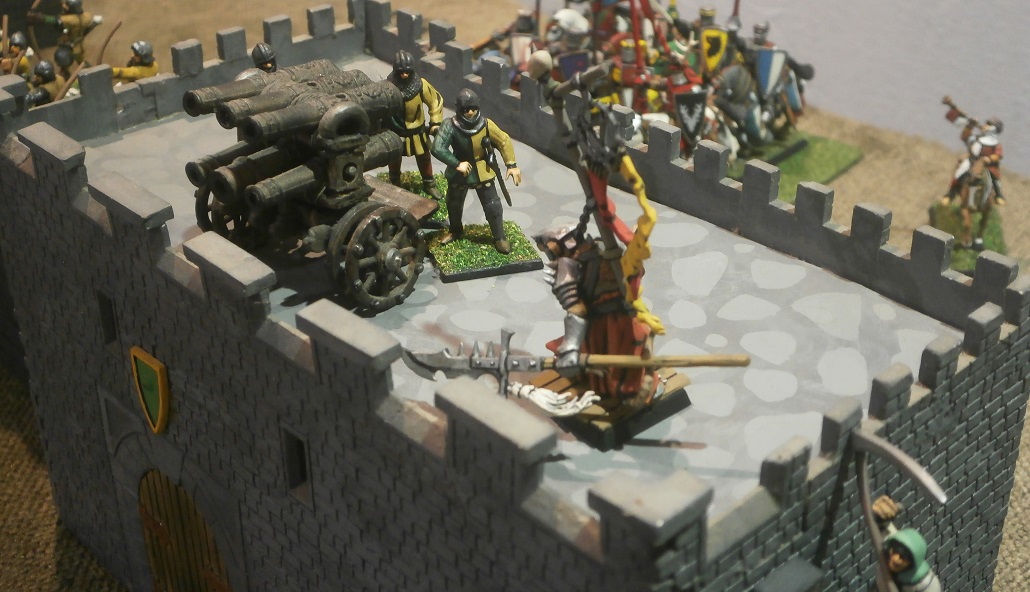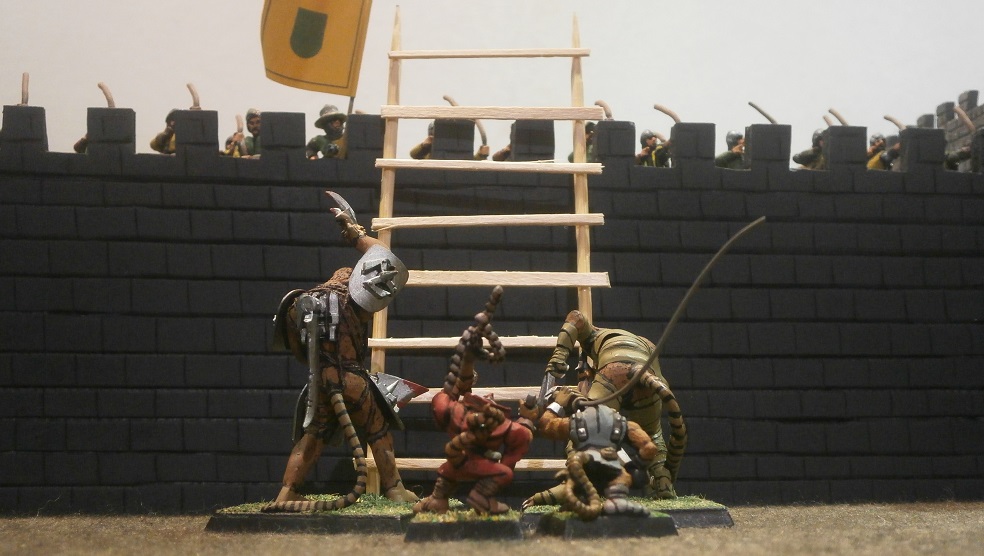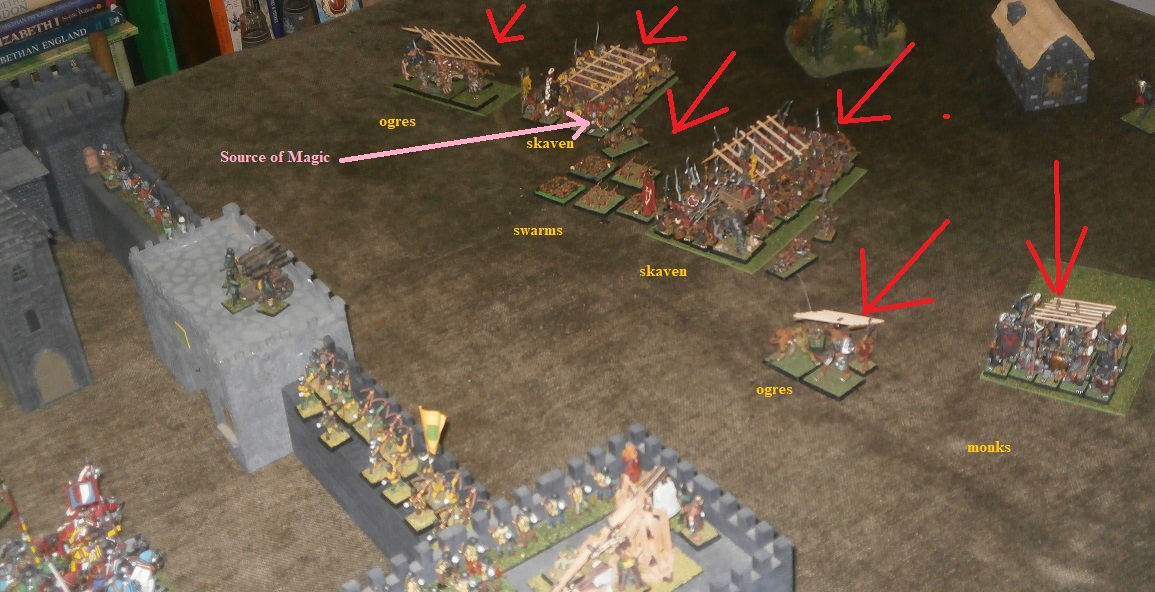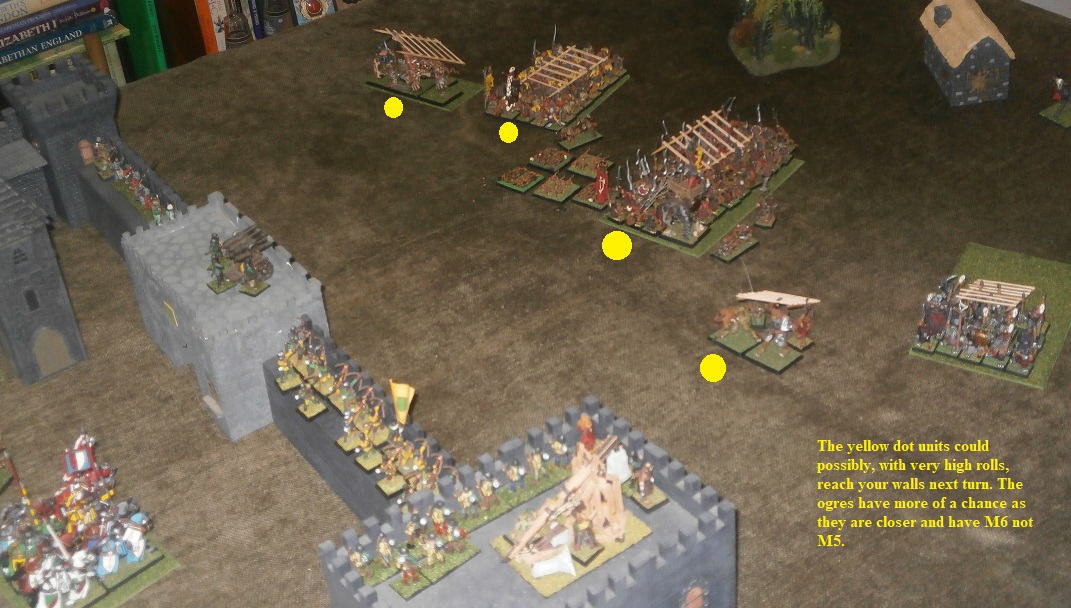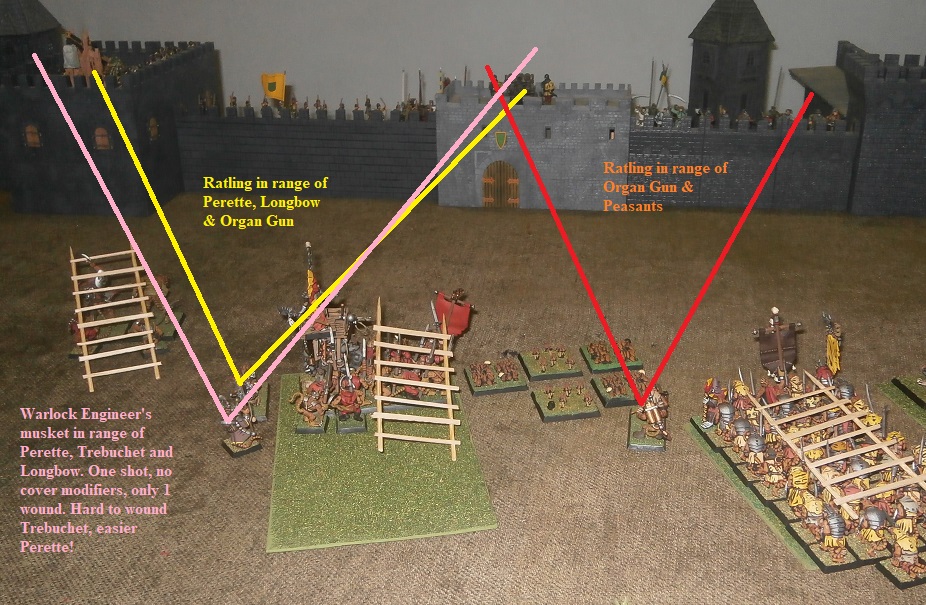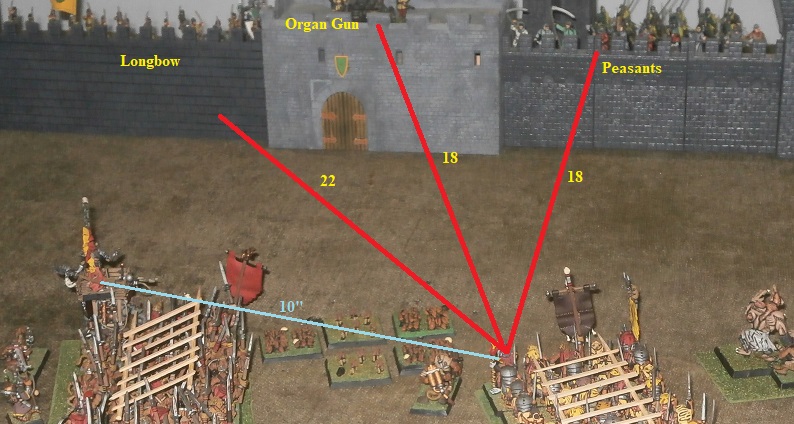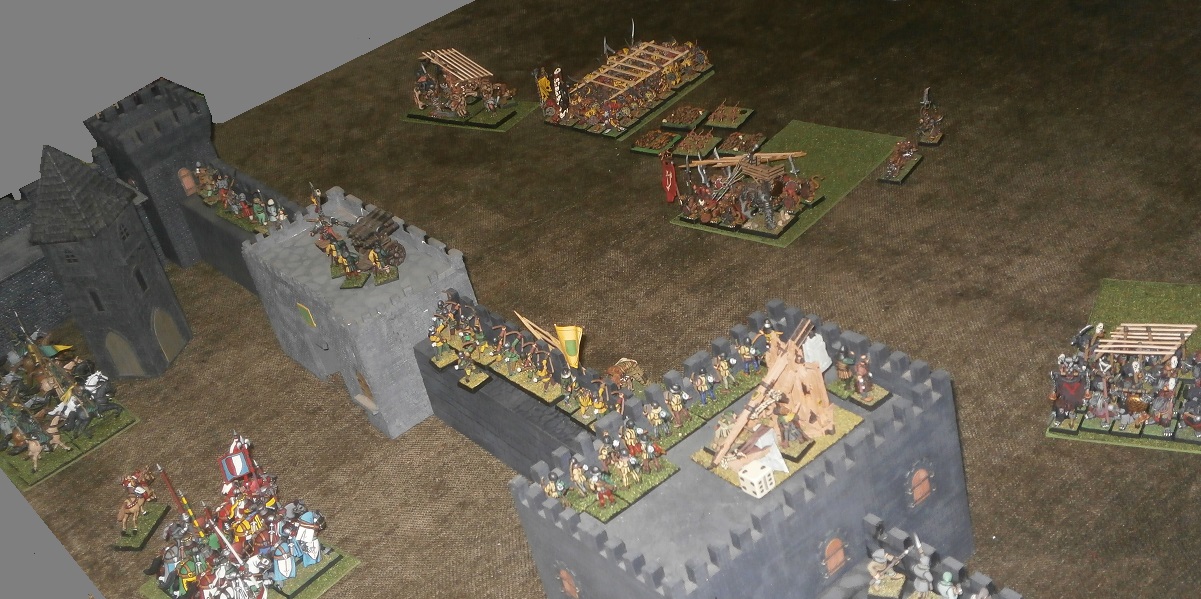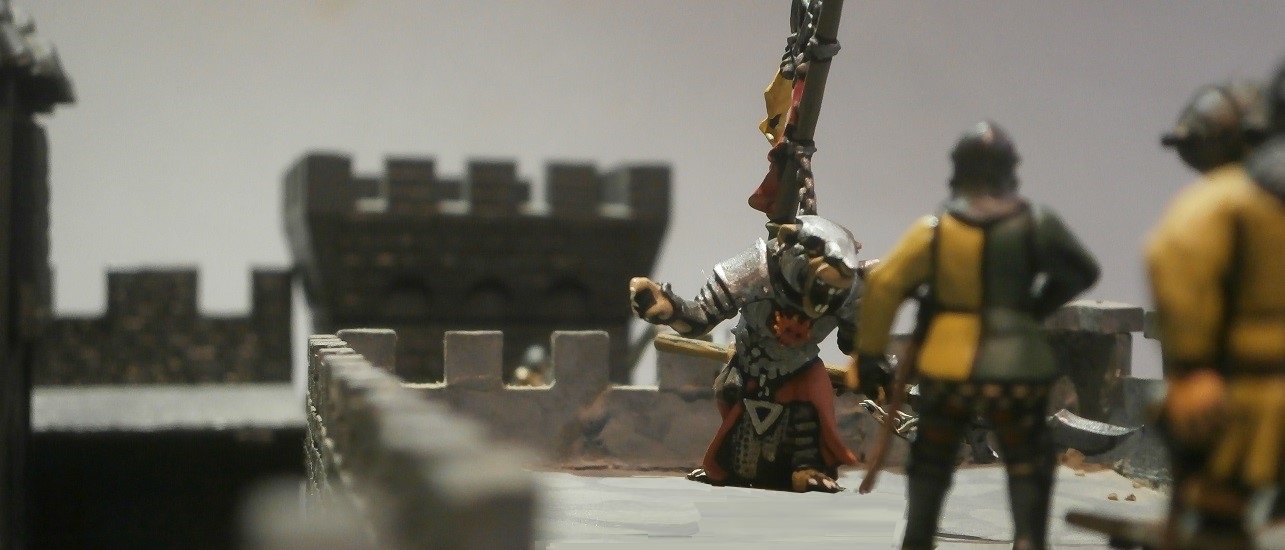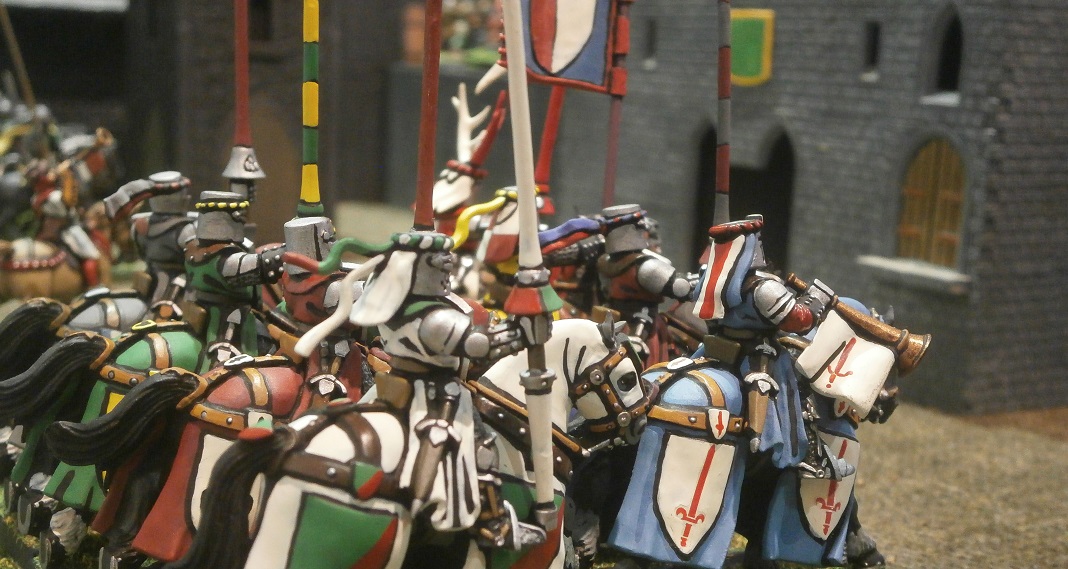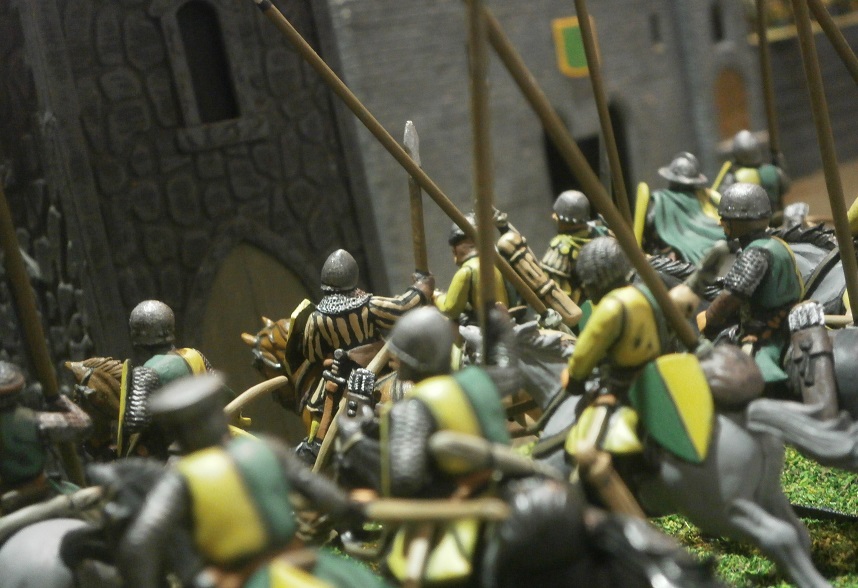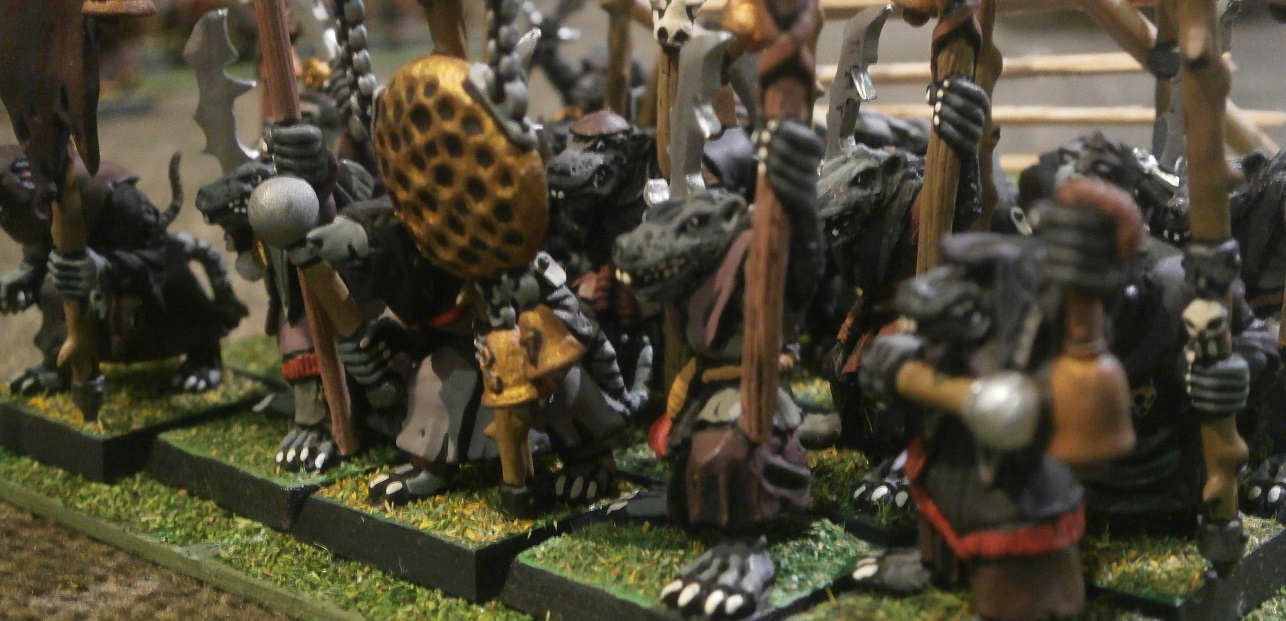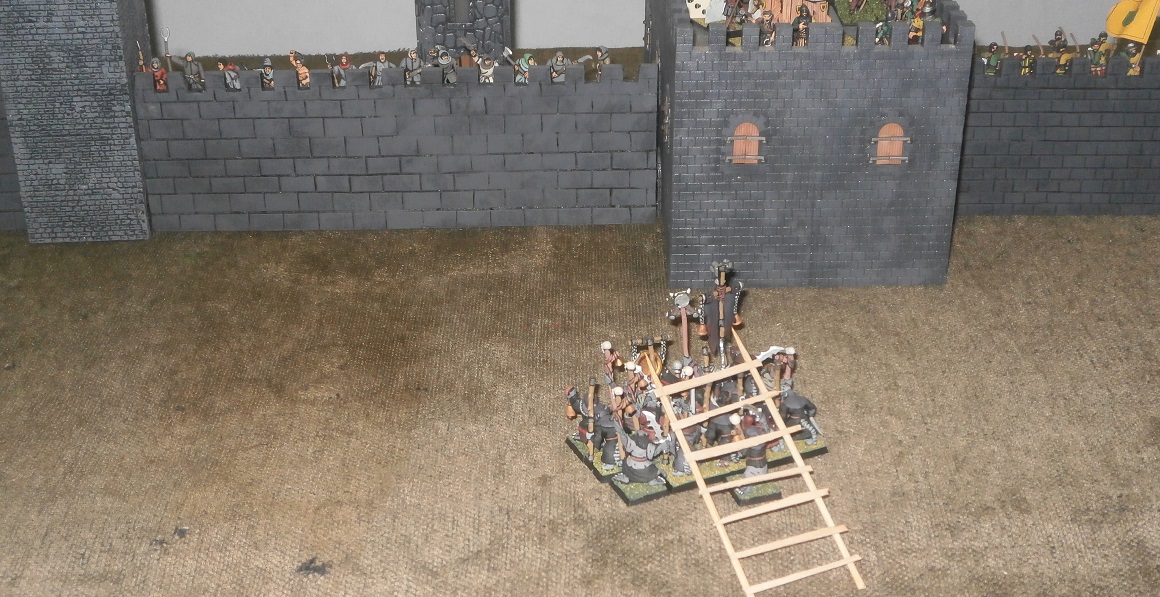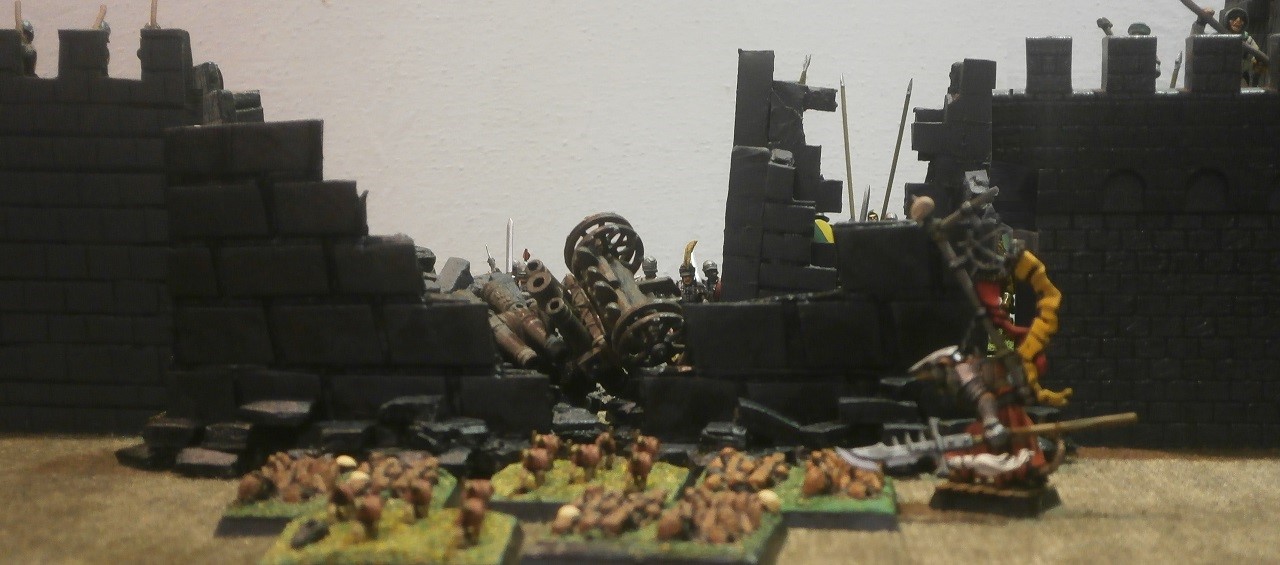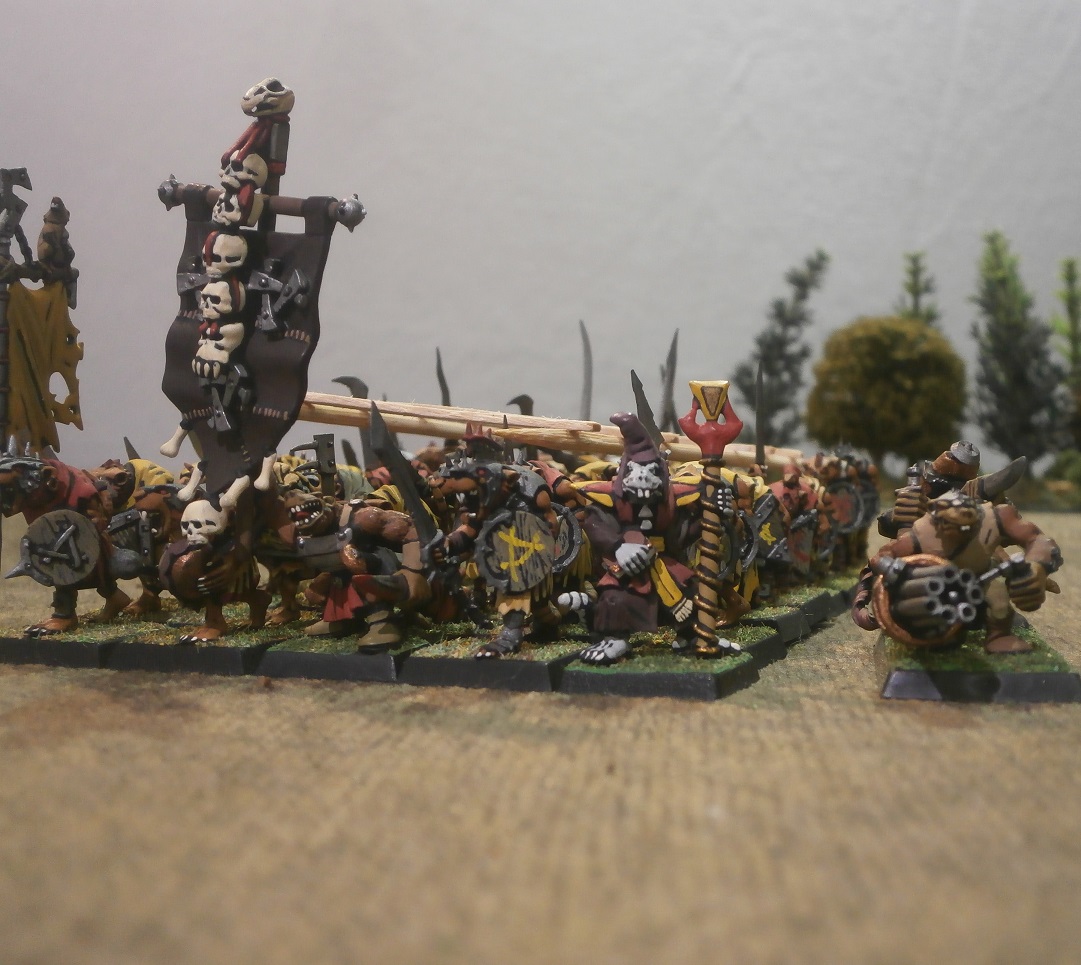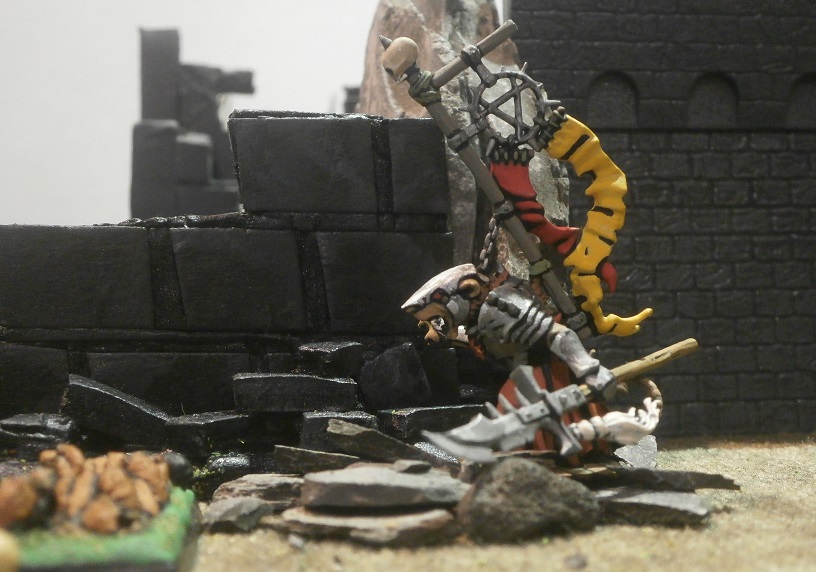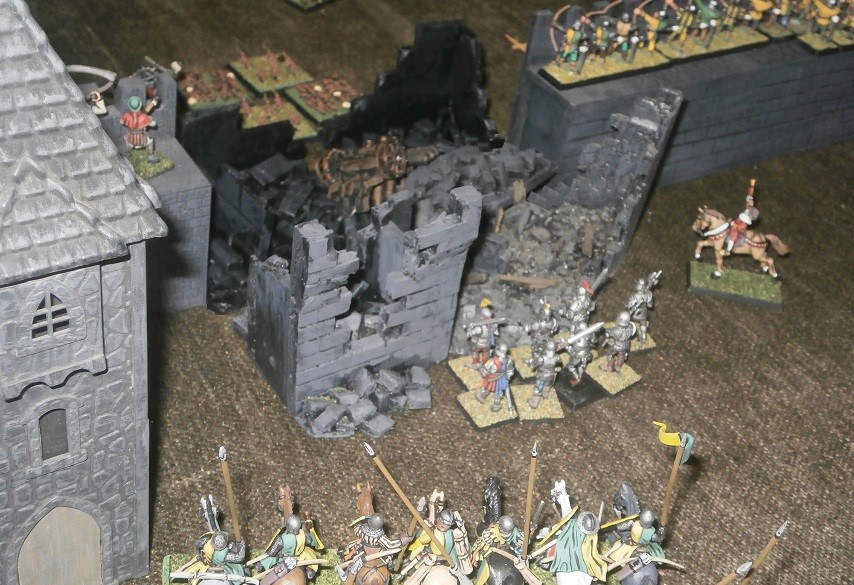Padre
Lord
Glee!
Near the city of Ebino, at the end of Winter, IC 2403-4
This day, this very moment, felt like a culmination of Biagino’s life and undeath, as if everything that had happened to him, good and bad, joyful and sad and everything he had ever done, decent and dire, kind and cruel, led to this moment. Not the culmination, for it was not the end of his undeath, but it was a destination he had, until now, howsoever unwittingly, always been heading towards.
Once more he was directly serving his beloved mistress, and he knew her satisfaction. He strove ecstatically to do whatsoever she wished, and better still, he knew exactly what that was. When leading the army at Trantio he had only the memory of her commands to guide him, which meant agonising over the details, night to night, by himself, to fathom how they could be obeyed in ever-changing circumstances. Now her orders were fresh in his mind, and she remained close enough that he could feel her powerful will and her sharp love in every moment. Her omnipresent guidance meant his decisions came easily, his actions were swift, his delight was magnified. He was like a cherished son receiving praise from his doting mother; a beloved hound petted fondly by its mistress; a favourite blade admired in the moonlight by its wielder.
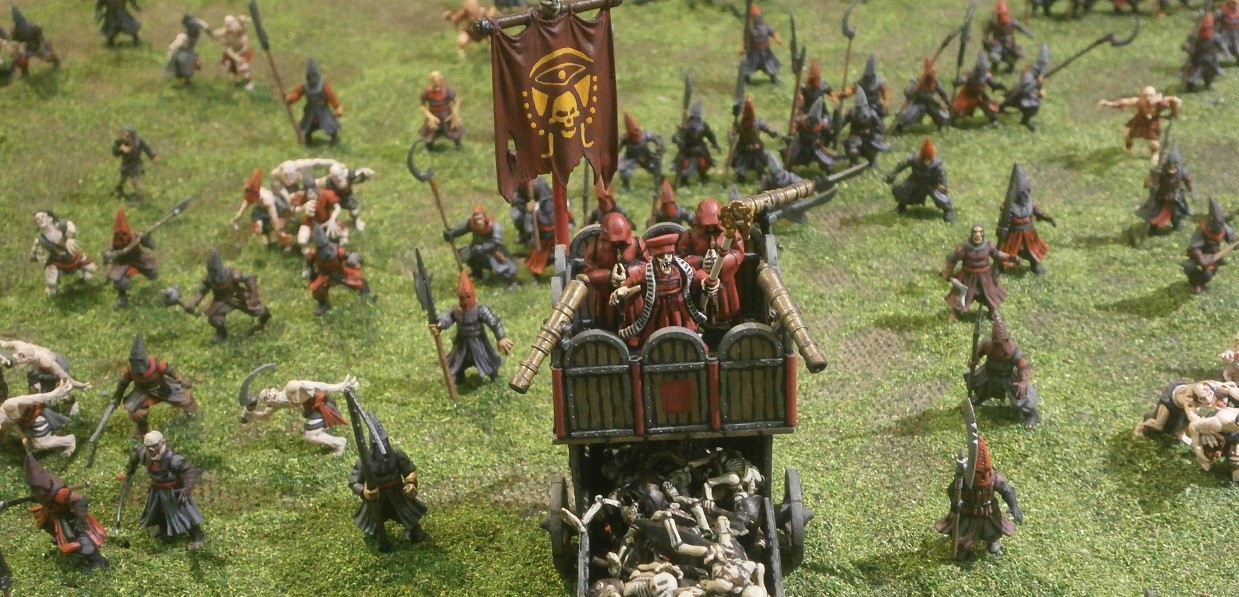
He rode atop the carroccio that once belonged the arch-lector Calictus II, captured in the same battle in which Biagino was kissed by the duchess and became hers forevermore. In life, Calictus had been his master; he himself was but one of the arch-lector’s many servants; and this great wagon had been the nearest thing to a church of Morr on the field of battle. Now Calictus was dead and he himself had become a High Priest; much of Calictus’ army was his to command, raised from death to march again; and the carroccio was heaped with corpses and made into a formidable focus of necromantic magics in the service of his own Church of Nagash.
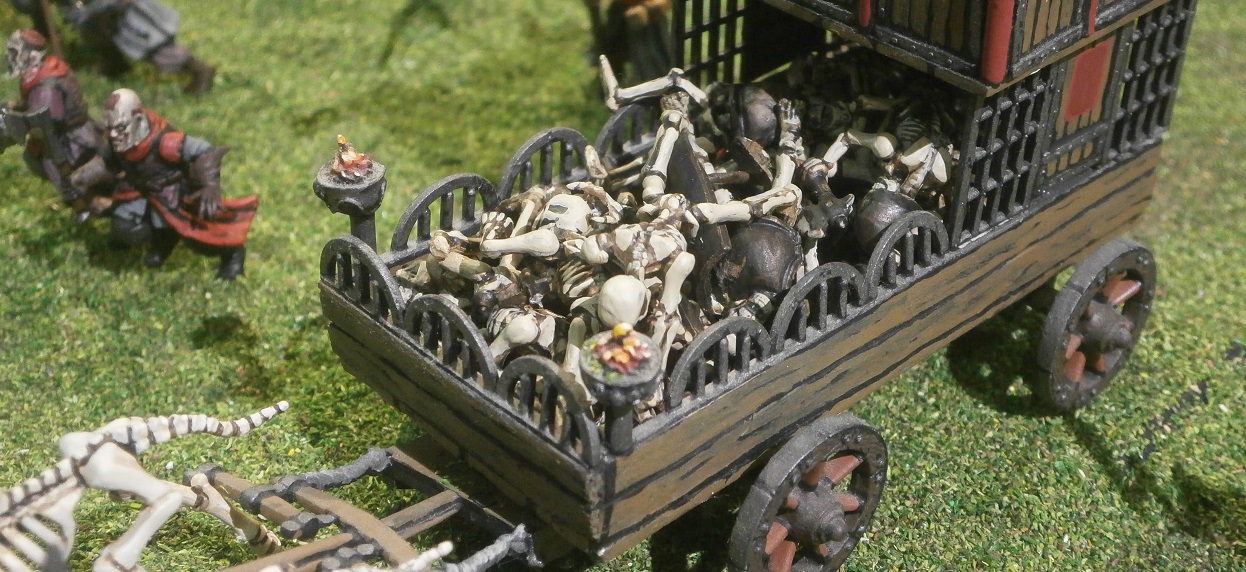
As the wagon trundled on, pulled by four pairs of entirely osseous horses, he allowed the magical winds of dark enchantment to flow through him. He could feed on the power the unholy carroccio funnelled, delight as his mistress’s managing will honed and shaped that power, and revel as it poured from him to animate the vast throng of witless worshippers (the Disciplinati di Nagash) all around him.
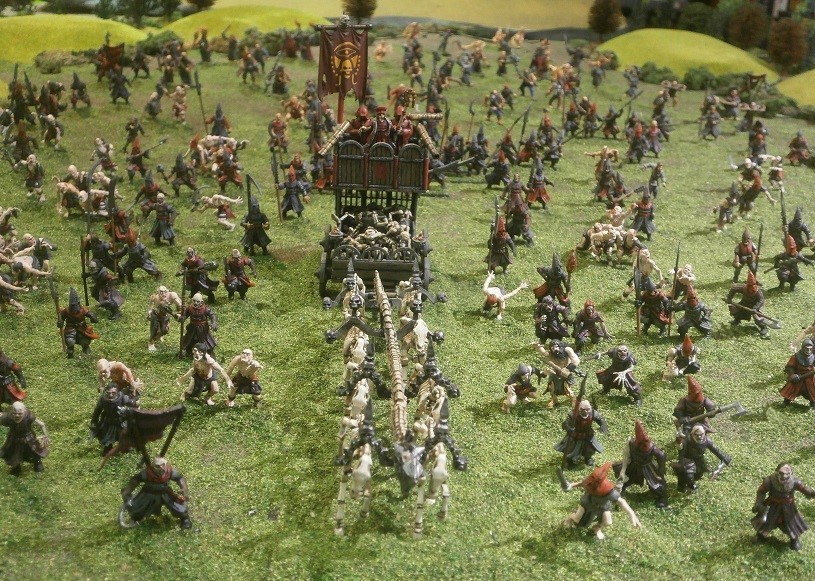
His senses were not just sharpened far beyond those of mortal men but magnified almost exponentially so that each of the cavorting corpses became an extension of him, limbs with which to strike at the enemy. Even the horses were directed by the power of his own mind. No lash or crop was required, for his mere intention could turn, speed or slow the beasts as easily as a man might walk.
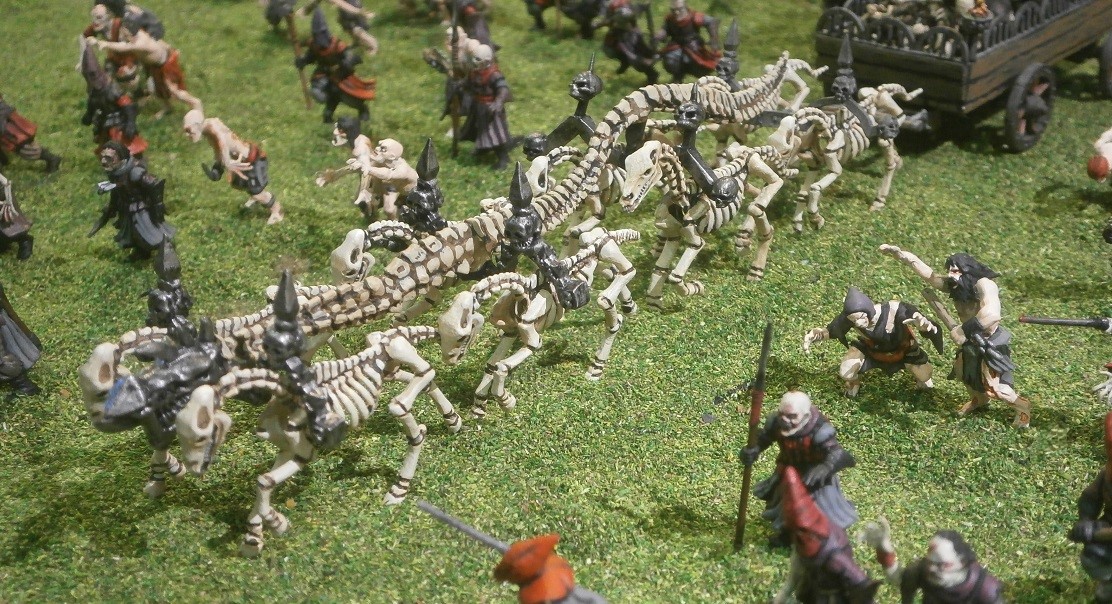
Behind him stood two of his priests, members of La Fraternita di Morti Irrequieti. Their minds were bound to his as his was to Duchess Maria’s, providing a very satisfactory feeling of balance. He could slavishly love and obey the duchess whilst receiving just the same from his priests. His own subjection, which otherwise might seem almost pathetic and demeaning, was given freely, for he himself was the object of exactly equal worship. They were not his puppets, like his hundreds of Disciplinati, for they had minds just as he. They obeyed because they yearned to do so, not because he controlled their very movements. This is why he had created them – having only the Disciplinati to guard him would make him vulnerable. If he were to be distracted, even for a moment, then his Disciplinati would be also. These two priests, however, could react quickly and upon their own initiative. If Biagino were wounded, even dying, these priests would retain all the strength of body and will they ever had, while the Disciplinati would stumble and stagger in bewilderment, or even succumb to death.

Nevertheless, despite his gleeful joy at all these things combined, right this very moment the satisfaction which far surpassed all others, was the gloriously intense pleasure he felt at wielding the Disciplinati horde. Although only a tiny part of each of their minds remained, they were all his to rule, and the sheer size of the throng made him feel mightier than ever before.
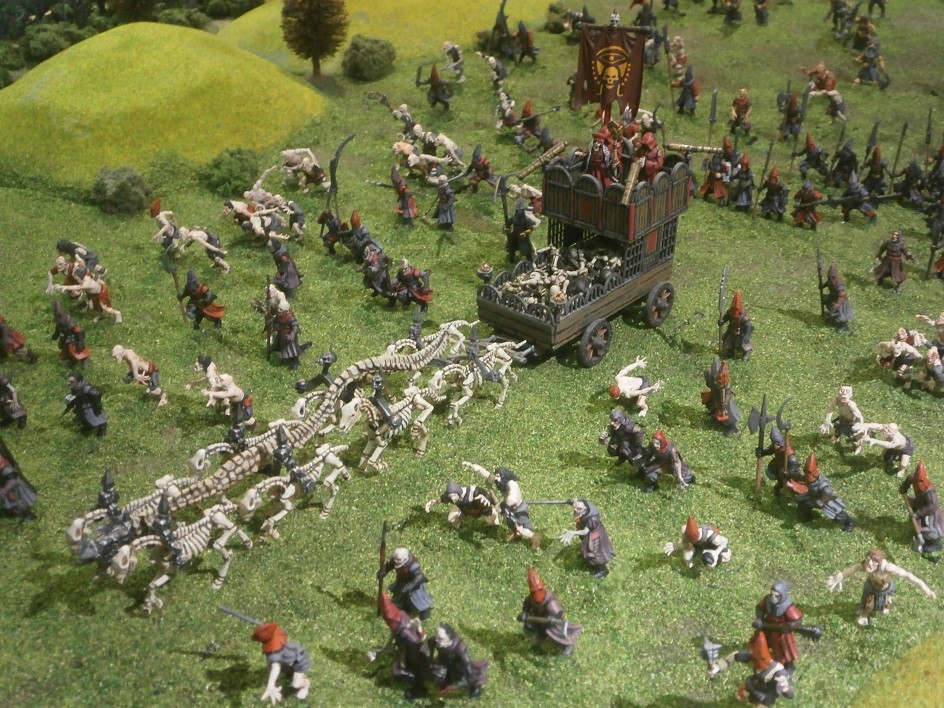
Some had been gifted to him by his mistress, resurrected after the Battle of the Isean Hills, close by the city of Ebino. Once dedicants of the Disciplinati di Morr, they had marched north to die. Although rotting, the winter cold had combined with necromantic magics to keep them quite whole, so that a good number, from a distance, might be mistaken for living men. Close up, however, their pallid-grey flesh, staring eyes and perhaps most of all, their stench, revealed the truth.

It amused Biagino to remember just how ugly such flagellating cultists had been when alive –he had seen a fair few – and to see now that death had made them even uglier, which one might well have presumed was not possible!
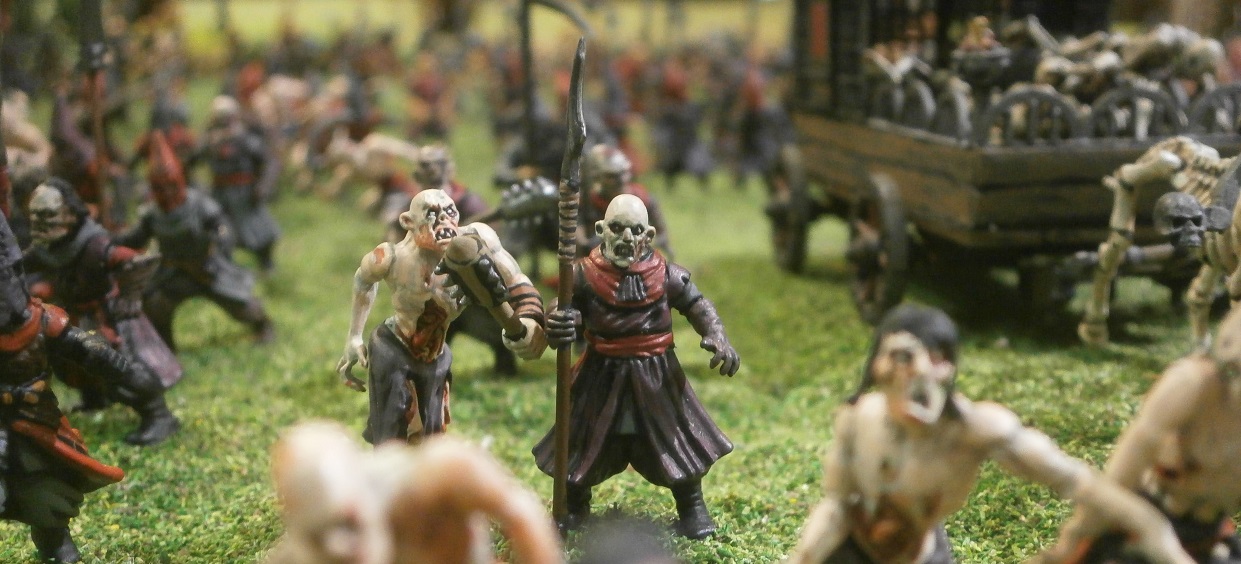
Most were still clad in the layers of robes they had worn in life, clutching whatever they had been carrying as the died. Many of their faces were obscured by hoods.
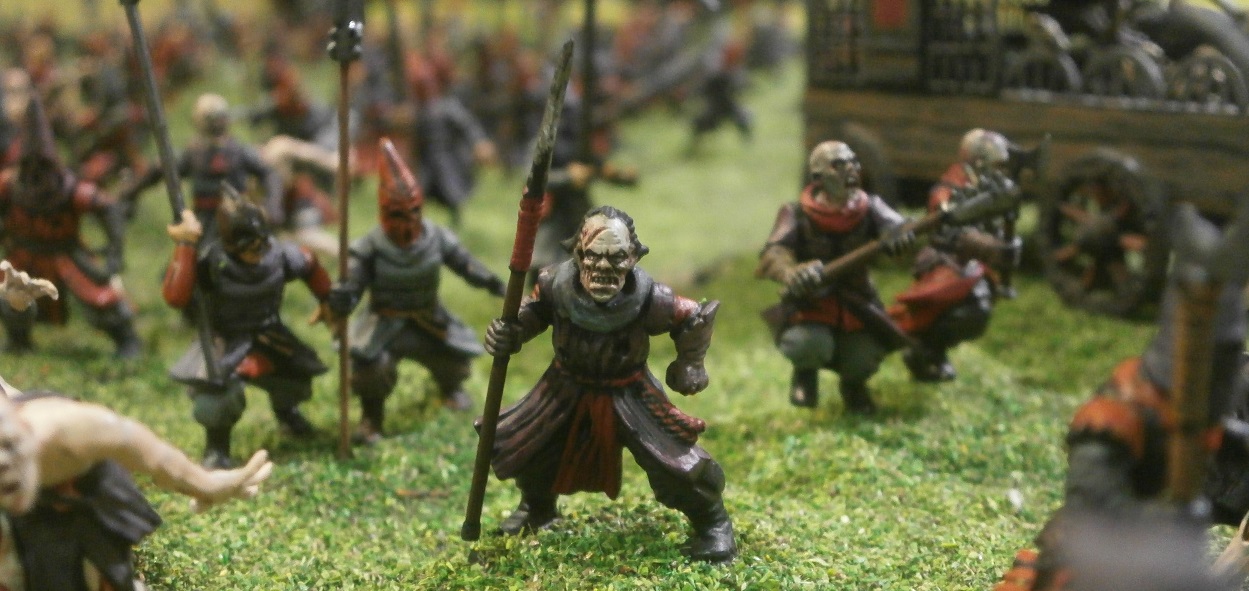
The others had been with him much longer, for they had died several seasons earlier at the Battle for Ebino – indeed upon the same day Biagino had fallen. In life they had been part of Arch-Lector Calictus’s Holy Army of Morr. In undeath, they had marched south with him to Trantio, then fled the Valley of Norochia to escort him all the way back to Ebino. It was becoming hard to mistake these for living men, so much of their flesh having rotted away. In parts they were reduced almost to the bone, and their robes were torn, worn and rotted away to a much greater degree, to reveal their now jagged chines.
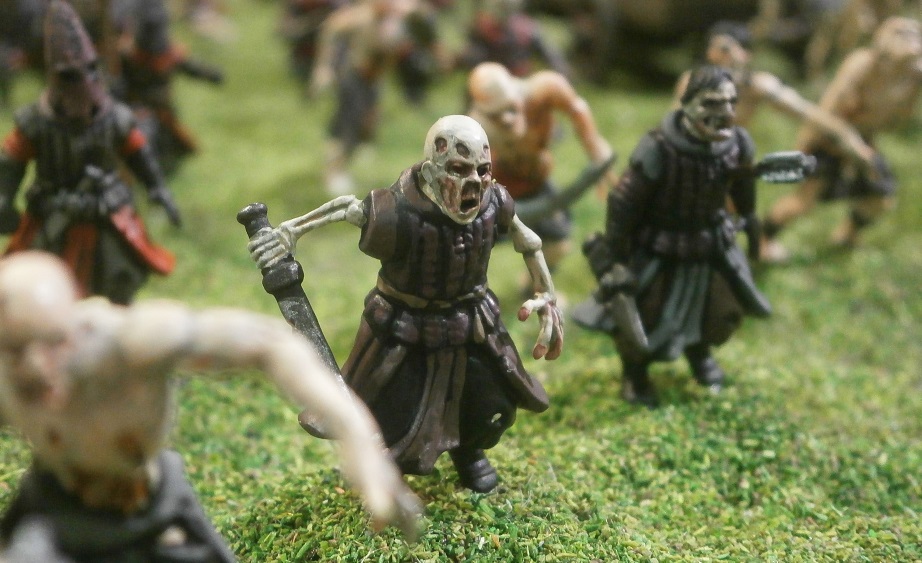
Some amongst the horde displayed the wounds that were most likely responsible for their deaths - great incisions, shattered bones or crumpled skulls. Others had gaping tears in their flesh made by the teeth and nails of their undead comrades during momentary lapses of guidance from their new master.
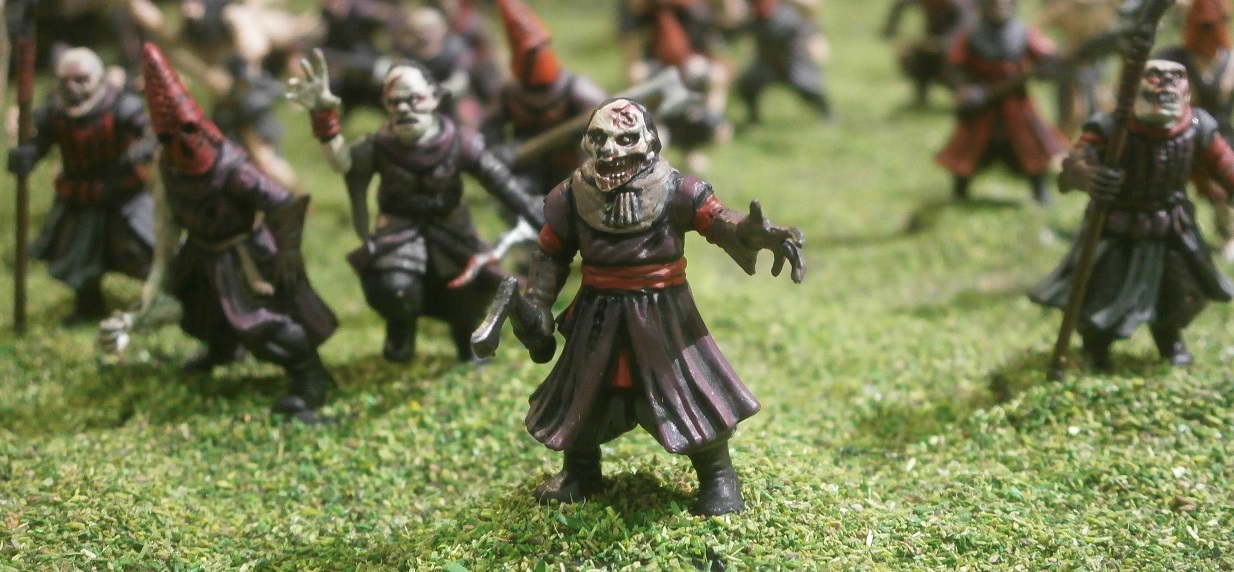
They felt pain – excruciating pain – but of a kind that no longer arose from the physical wounding of their bodies. It was an agony came from every part of them at one and the same time, both physical and spiritual. They were driven by a furious, hungry hatred, the last emotion left in the fragment of mind they now possessed. They seemed to leer, scowl and glower as they ran, although in truth what remained of their decaying faces could appear no other way.
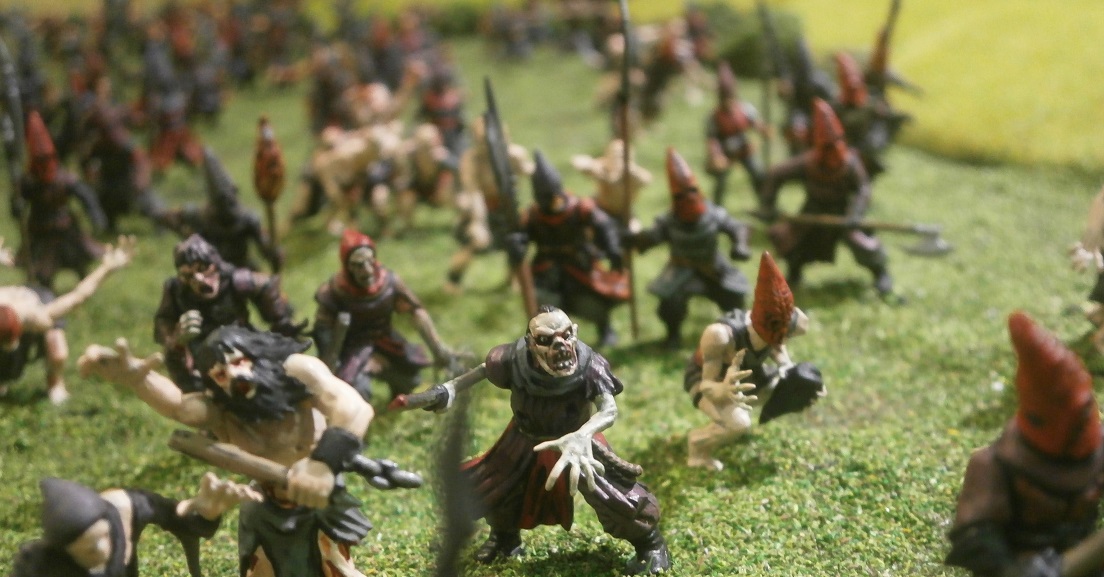
There was a cruel irony to their condition, for in life they had strived to scourge themselves with chains and knotted cords into an ecstatic pain and so induce a fighting frenzy that meant they felt no fear. Now, their every moment was a painful frenzy and they had forgotten fear entirely. Their craving had been satisfied, to the extreme, even beyond the extremity of their lives.
Biagino loved them all. To him, they were like tin soldiers are to a boy fanatically keen on his games of war; a precious collection to set out this way and that, to admire from one angle and another, while the excitement of the forthcoming battle grows ever stronger.
They were his playthings, his poppets, his bambinos. They were the weapon with which he could slaughter Tilea.
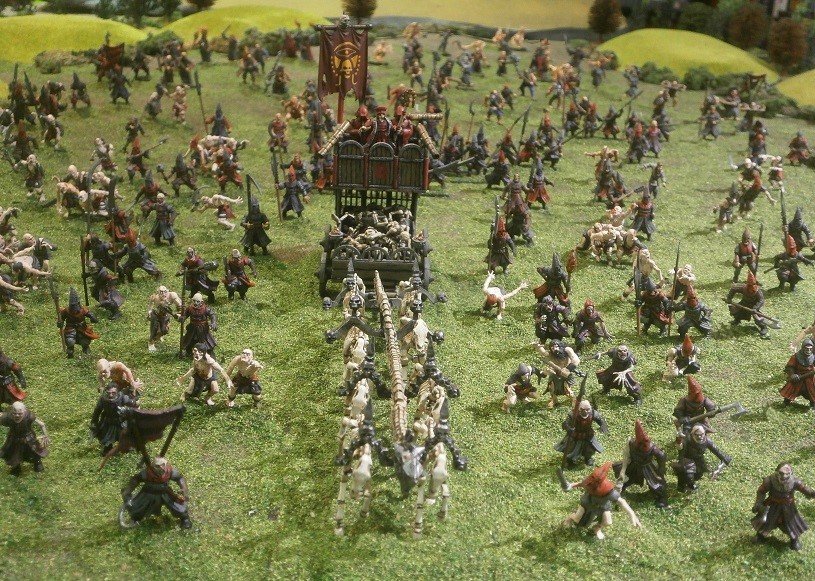
………………………………………………………………
Antonio Mugello’s letter continued
Duchess Maria’s forces, combined with Ebino’s impressive defences, must be sufficiently strong to cause even a general of Lord Alessio’s proven ability, commanding a truly mighty army, to hesitate. He has built a fortified camp south of the Bridge of Pontremola, said to incorporate the bridge into its boundary. Now, apparently, he waits for the army of the VMC. Does he know, I wonder, that they are instead lingering here in Remas?
Having spoken to several seamen of various origins, I have learned that the Sartosans, having already razed Luccini and its villages, defeating its small army in battle and taking the young king Ferronso hostage, then attempted to travel south along the coast. Upon their first attempt they had been driven back by the storms, which is when they took the young king, but then upon their second attempt the storm’s sister, with its easterly winds, apparently drove their fleet towards the island of Sartosa. Considering they attempted the same southerly course twice it seems plain to me that they were intending to raid the rich realm of Alcente. I cannot know for certain but were it not for the storms they would at least have passed that realm. Considering their success at Luccini, where they had only to fight a small army, perhaps they believe Alcente will prove just as easy a target what with its main strength, the army of the VMC, camped many leagues away here in Remas. As I suggested before, perhaps this is the real reason the army of the VMC has halted? General Valckenburgh might be torn between marching north as promised or returning south to protect his realm.
It is reported that Duke Ercole, once regent of Luccini and uncle to the captured king, and the condottiere General Marsilio da Fermo (Luccini’s military commander who once served with you, I believe, in the grand alliance army) have arrived together in Portomaggiore, seeking refuge after their defeat at the hands of the Sartosans. There they are apparently pressing for Lord Alessio’s assistance in the matter of their kidnapped king. They know Lord Alessio well, and perhaps believe him to be fond of the young king, for after all he did attend Ferronso’s crowning. Of course, with no army of their own, with Lord Alessio’s army busy in the north and the rest of his forces no doubt ordered to guard Portomaggiore against Sartosan raids, they are asking for a loan in gold to pay the ransom. Oddly, it seems to be the case that they do not know the actual amount of the ransom demand as their previous negotiations were disrupted by the battle. I suppose the Sartosans will let them know soon enough, for pirates are hardly known for their patience, nor can I imagine such ruffians enjoy having to keep the young king alive.
The mountain dwarfs of Karak Borgo, having driven the last of Boulderguts’ ogres from Campogrotta and Ravola, establishing the Bretonnian nobleman Baron Garoy in the latter and General Mazallini and his Compagnia del Sole in the former, have apparently withdrawn back up the Carraia del Ferro to their mountain fastness. It is a widely held opinion among Reman merchants who have had dealings with the dwarfs, that having defeated the ogres and re-seeded civilisation in the neighbouring realms, King Jaldeog expects trade to flourish and goods to flow once more, however the ongoing vampire threat and the appearance of ratto uomo forces in the north make this unlikely, at least for now. Perhaps King Jaldeog wanted to give both realms sufficient time to re-establish themselves, so that when the wars finally end, both will be ripe for rich trading opportunities? As finishing off the ogres appears to have been the dwarfs’ only intended contribution to the wars, King Jaldeog may now expect the Tilean realms to defeat the vampires. Perhaps the resurgence of the ratto uomo, the dwarf’s particularly hated enemy, might prompt him, even force him, to contribute more to the struggle ahead?
Last of all, I can report that here it is said that you have raised the militia of Verezzo, bolstered their numbers substantially and are currently busied with drilling and exercises, all the better the defend Verezzo from the likes of the duke of Pavona. Of course, you know the truth concerning this, and so my words are intended only to make you aware of what is believed in Remas concerning Verezzan affairs. If there is anything I can do in your service, as your agent in Remas, then you only have to say and it shall become my foremost endeavour to obey.
Your most humble servant
Antonio Mugello
Near the city of Ebino, at the end of Winter, IC 2403-4
This day, this very moment, felt like a culmination of Biagino’s life and undeath, as if everything that had happened to him, good and bad, joyful and sad and everything he had ever done, decent and dire, kind and cruel, led to this moment. Not the culmination, for it was not the end of his undeath, but it was a destination he had, until now, howsoever unwittingly, always been heading towards.
Once more he was directly serving his beloved mistress, and he knew her satisfaction. He strove ecstatically to do whatsoever she wished, and better still, he knew exactly what that was. When leading the army at Trantio he had only the memory of her commands to guide him, which meant agonising over the details, night to night, by himself, to fathom how they could be obeyed in ever-changing circumstances. Now her orders were fresh in his mind, and she remained close enough that he could feel her powerful will and her sharp love in every moment. Her omnipresent guidance meant his decisions came easily, his actions were swift, his delight was magnified. He was like a cherished son receiving praise from his doting mother; a beloved hound petted fondly by its mistress; a favourite blade admired in the moonlight by its wielder.

He rode atop the carroccio that once belonged the arch-lector Calictus II, captured in the same battle in which Biagino was kissed by the duchess and became hers forevermore. In life, Calictus had been his master; he himself was but one of the arch-lector’s many servants; and this great wagon had been the nearest thing to a church of Morr on the field of battle. Now Calictus was dead and he himself had become a High Priest; much of Calictus’ army was his to command, raised from death to march again; and the carroccio was heaped with corpses and made into a formidable focus of necromantic magics in the service of his own Church of Nagash.

As the wagon trundled on, pulled by four pairs of entirely osseous horses, he allowed the magical winds of dark enchantment to flow through him. He could feed on the power the unholy carroccio funnelled, delight as his mistress’s managing will honed and shaped that power, and revel as it poured from him to animate the vast throng of witless worshippers (the Disciplinati di Nagash) all around him.

His senses were not just sharpened far beyond those of mortal men but magnified almost exponentially so that each of the cavorting corpses became an extension of him, limbs with which to strike at the enemy. Even the horses were directed by the power of his own mind. No lash or crop was required, for his mere intention could turn, speed or slow the beasts as easily as a man might walk.

Behind him stood two of his priests, members of La Fraternita di Morti Irrequieti. Their minds were bound to his as his was to Duchess Maria’s, providing a very satisfactory feeling of balance. He could slavishly love and obey the duchess whilst receiving just the same from his priests. His own subjection, which otherwise might seem almost pathetic and demeaning, was given freely, for he himself was the object of exactly equal worship. They were not his puppets, like his hundreds of Disciplinati, for they had minds just as he. They obeyed because they yearned to do so, not because he controlled their very movements. This is why he had created them – having only the Disciplinati to guard him would make him vulnerable. If he were to be distracted, even for a moment, then his Disciplinati would be also. These two priests, however, could react quickly and upon their own initiative. If Biagino were wounded, even dying, these priests would retain all the strength of body and will they ever had, while the Disciplinati would stumble and stagger in bewilderment, or even succumb to death.

Nevertheless, despite his gleeful joy at all these things combined, right this very moment the satisfaction which far surpassed all others, was the gloriously intense pleasure he felt at wielding the Disciplinati horde. Although only a tiny part of each of their minds remained, they were all his to rule, and the sheer size of the throng made him feel mightier than ever before.

Some had been gifted to him by his mistress, resurrected after the Battle of the Isean Hills, close by the city of Ebino. Once dedicants of the Disciplinati di Morr, they had marched north to die. Although rotting, the winter cold had combined with necromantic magics to keep them quite whole, so that a good number, from a distance, might be mistaken for living men. Close up, however, their pallid-grey flesh, staring eyes and perhaps most of all, their stench, revealed the truth.

It amused Biagino to remember just how ugly such flagellating cultists had been when alive –he had seen a fair few – and to see now that death had made them even uglier, which one might well have presumed was not possible!

Most were still clad in the layers of robes they had worn in life, clutching whatever they had been carrying as the died. Many of their faces were obscured by hoods.

The others had been with him much longer, for they had died several seasons earlier at the Battle for Ebino – indeed upon the same day Biagino had fallen. In life they had been part of Arch-Lector Calictus’s Holy Army of Morr. In undeath, they had marched south with him to Trantio, then fled the Valley of Norochia to escort him all the way back to Ebino. It was becoming hard to mistake these for living men, so much of their flesh having rotted away. In parts they were reduced almost to the bone, and their robes were torn, worn and rotted away to a much greater degree, to reveal their now jagged chines.

Some amongst the horde displayed the wounds that were most likely responsible for their deaths - great incisions, shattered bones or crumpled skulls. Others had gaping tears in their flesh made by the teeth and nails of their undead comrades during momentary lapses of guidance from their new master.

They felt pain – excruciating pain – but of a kind that no longer arose from the physical wounding of their bodies. It was an agony came from every part of them at one and the same time, both physical and spiritual. They were driven by a furious, hungry hatred, the last emotion left in the fragment of mind they now possessed. They seemed to leer, scowl and glower as they ran, although in truth what remained of their decaying faces could appear no other way.

There was a cruel irony to their condition, for in life they had strived to scourge themselves with chains and knotted cords into an ecstatic pain and so induce a fighting frenzy that meant they felt no fear. Now, their every moment was a painful frenzy and they had forgotten fear entirely. Their craving had been satisfied, to the extreme, even beyond the extremity of their lives.
Biagino loved them all. To him, they were like tin soldiers are to a boy fanatically keen on his games of war; a precious collection to set out this way and that, to admire from one angle and another, while the excitement of the forthcoming battle grows ever stronger.
They were his playthings, his poppets, his bambinos. They were the weapon with which he could slaughter Tilea.

………………………………………………………………
Antonio Mugello’s letter continued
Duchess Maria’s forces, combined with Ebino’s impressive defences, must be sufficiently strong to cause even a general of Lord Alessio’s proven ability, commanding a truly mighty army, to hesitate. He has built a fortified camp south of the Bridge of Pontremola, said to incorporate the bridge into its boundary. Now, apparently, he waits for the army of the VMC. Does he know, I wonder, that they are instead lingering here in Remas?
Having spoken to several seamen of various origins, I have learned that the Sartosans, having already razed Luccini and its villages, defeating its small army in battle and taking the young king Ferronso hostage, then attempted to travel south along the coast. Upon their first attempt they had been driven back by the storms, which is when they took the young king, but then upon their second attempt the storm’s sister, with its easterly winds, apparently drove their fleet towards the island of Sartosa. Considering they attempted the same southerly course twice it seems plain to me that they were intending to raid the rich realm of Alcente. I cannot know for certain but were it not for the storms they would at least have passed that realm. Considering their success at Luccini, where they had only to fight a small army, perhaps they believe Alcente will prove just as easy a target what with its main strength, the army of the VMC, camped many leagues away here in Remas. As I suggested before, perhaps this is the real reason the army of the VMC has halted? General Valckenburgh might be torn between marching north as promised or returning south to protect his realm.
It is reported that Duke Ercole, once regent of Luccini and uncle to the captured king, and the condottiere General Marsilio da Fermo (Luccini’s military commander who once served with you, I believe, in the grand alliance army) have arrived together in Portomaggiore, seeking refuge after their defeat at the hands of the Sartosans. There they are apparently pressing for Lord Alessio’s assistance in the matter of their kidnapped king. They know Lord Alessio well, and perhaps believe him to be fond of the young king, for after all he did attend Ferronso’s crowning. Of course, with no army of their own, with Lord Alessio’s army busy in the north and the rest of his forces no doubt ordered to guard Portomaggiore against Sartosan raids, they are asking for a loan in gold to pay the ransom. Oddly, it seems to be the case that they do not know the actual amount of the ransom demand as their previous negotiations were disrupted by the battle. I suppose the Sartosans will let them know soon enough, for pirates are hardly known for their patience, nor can I imagine such ruffians enjoy having to keep the young king alive.
The mountain dwarfs of Karak Borgo, having driven the last of Boulderguts’ ogres from Campogrotta and Ravola, establishing the Bretonnian nobleman Baron Garoy in the latter and General Mazallini and his Compagnia del Sole in the former, have apparently withdrawn back up the Carraia del Ferro to their mountain fastness. It is a widely held opinion among Reman merchants who have had dealings with the dwarfs, that having defeated the ogres and re-seeded civilisation in the neighbouring realms, King Jaldeog expects trade to flourish and goods to flow once more, however the ongoing vampire threat and the appearance of ratto uomo forces in the north make this unlikely, at least for now. Perhaps King Jaldeog wanted to give both realms sufficient time to re-establish themselves, so that when the wars finally end, both will be ripe for rich trading opportunities? As finishing off the ogres appears to have been the dwarfs’ only intended contribution to the wars, King Jaldeog may now expect the Tilean realms to defeat the vampires. Perhaps the resurgence of the ratto uomo, the dwarf’s particularly hated enemy, might prompt him, even force him, to contribute more to the struggle ahead?
Last of all, I can report that here it is said that you have raised the militia of Verezzo, bolstered their numbers substantially and are currently busied with drilling and exercises, all the better the defend Verezzo from the likes of the duke of Pavona. Of course, you know the truth concerning this, and so my words are intended only to make you aware of what is believed in Remas concerning Verezzan affairs. If there is anything I can do in your service, as your agent in Remas, then you only have to say and it shall become my foremost endeavour to obey.
Your most humble servant
Antonio Mugello


